With the unofficial international chest day falling on a Monday for both amateur and veteran gym-goers alike, big and distinct chest muscles are akin to the Holy Grail. Even if you’ve never stepped foot in a gym, you will know of the notorious bench press, one of the most commonly performed chest exercises in any well-rounded gym program.
But, any Tom, Dick and Harry can weigh in with suggestions as to what they think are the best chest exercises to help you get huge. But at the same time, because there are so many, sticking to the ones you believe to work, or forming any sort of routine, can often be easier said than done.
Whether you’re a fitness newbie who simply doesn’t like what they see in the mirror each morning, and is in need of a starting point, or you’re a veteran gym rat who believes they know every chest exercise under the sun, it can always be handy to have some extra guidance.
Which is where we come in. We’ve rounded up the definitive list of chest exercises / workouts you need to be integrating into your weekly gym routine if you want any chance of filling out those shirts of yours and being able to have bragging rights over how much you bench.
Looking for further exercise inspiration? Check out our complete guide to workouts for men here.
In this check exercise story…
- What Are The Chest Muscles?
- What Are The Main Movements Of The Chest Muscles?
- What Are The Benefits Of Doing Chest Exercises?
- WATCH: All The Best Chest Exercises In One Video
- Best Upper Chest Exercises & Workouts
- Best Lower Chest Workouts
- Best Chest Workouts For Mass
- Best Dumbbell Chest Workouts
- Best Home Chest Workouts
- Other Chest Workouts
What Are The Chest Muscles?
Officially known as the pectoral muscles – or “pecs” as you would have most likely have heard – are the most prominent muscles on the front of the body that team up with the bones of the upper arm the shoulder.
The pectoral muscles comprise pectoralis major, the larger of the pecs, that is used to help manoeuvre, i.e. flex, extend and rotate, the humerus (the long bone found in the upper arm, for those who skipped biology class). Pectoralis minor, meanwhile, is a smaller muscle that attaches itself to your ribs. This muscle is used to help stabilise your shoulders.
Elsewhere in the anatomy of the chest muscles, you have the pectoral fascia, which as its name suggests, is a thin layer of tissue that covers the pectoralis major and extends round the latissimus dorsi muscle – “lats” – on your back.
These chest muscles and more can all be targeted with various exercises to build up both their size and strength, and a well-rounded chest workout should hit them all, resulting in an enviable set of pecs.
What Are The Main Movements Of The Chest Muscles?
Personal trainer Luke Andrew tells DMARGE, “Functionally speaking, your chest has 3 main movements and if we choose to include these into our training, we can get a deeper contraction and better activation. Try these movements with your right hand and place your left hand on your right chest and see if you can feel these contractions.”
- Flexion of the Arm i.e. bring your right arm from your side up so it parallels with the ground
- Medial Rotation of the Arm i.e. with your arm up, try rotating your arm inwards/medially so your palm goes from facing inside to facing the ground
- Abduction of the Armi.e. now try to bring your arm across your body as if you were performing a cable crossover movement
“You should be able to feel an increase in tension in your chest and hence by sneaking in these functional movements even in small amounts, we’ll be able to get better chest recruitment and make your workouts more functional.”
What Are The Benefits Of Doing Chest Exercises?
We asked our resident personal trainer at DMARGE – Ben Lucas – to share his thoughts on why training your chest is so important:
There’s no doubt that building up your chest through exercise is a popular physical goal that many men strive for. However, having strong chest muscles goes well beyond that… Having strong chest muscles is great for your posture. It helps to keep your shoulders pulled back, and your spine in alignment. Having strong chest muscles is also essential for those with athletic pursuits and sports like basketball, tennis, football and boxing will all be much easier if you have a stronger chest. Working this muscle group can also improve your metabolism, your confidence and your mental health.
Ben Lucas, Owner and Director at Flow Athletic
WATCH: All The Best Chest Exercises In One Video
Best Upper Chest Exercises & Workouts
Incline Bench Press
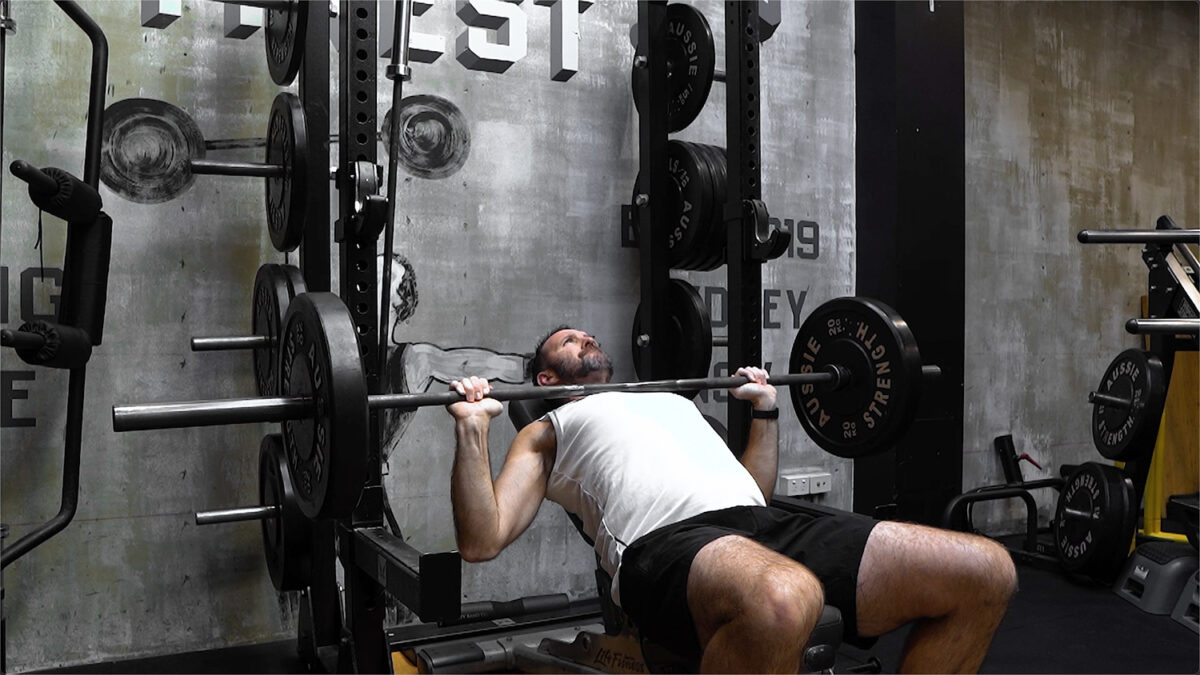
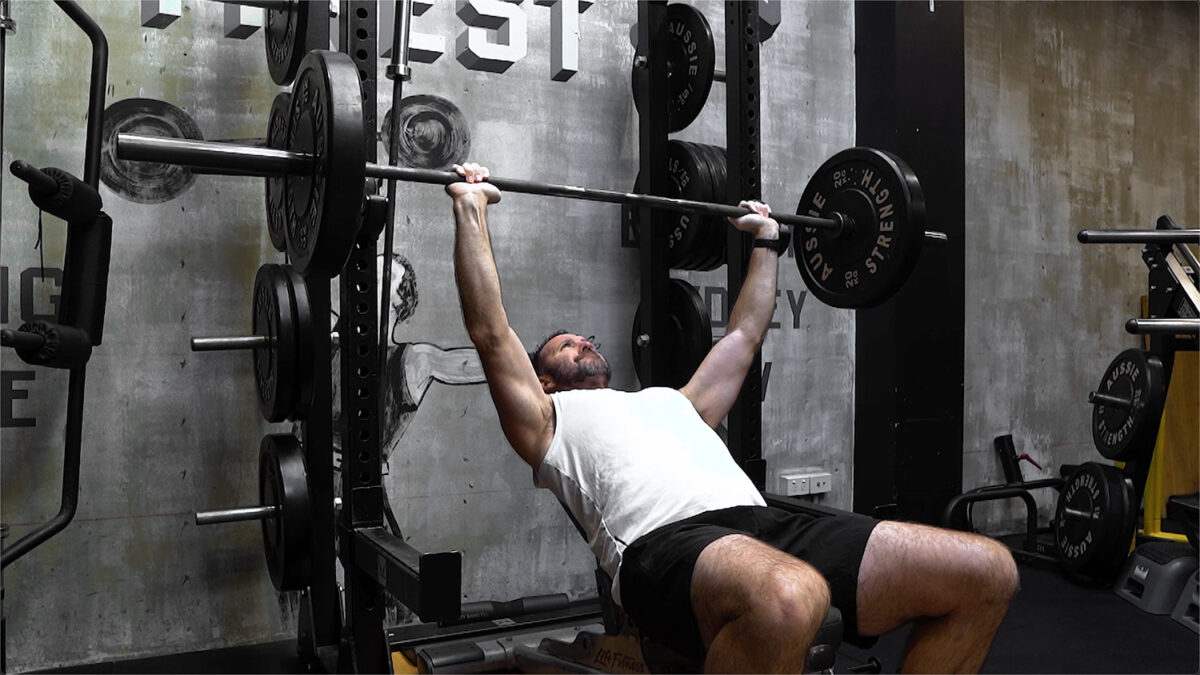
An incline bench press (on an incline of around 45 degrees) is more effective at targeting the upper chest and front side of the shoulders.
How to perform: Lie down on a flat bench with a barbell set at shoulder height and ensure your hand grip is facing away from you – overhand grip – and with your hands set at wider than shoulder width.
Push yourself into the bench, as opposed to letting your arms do the work. Breathe out as you press both arms up and squeeze your chest as you get to the top before slowly returning back to the starting position. Count to three or four as you lower the bar.
To progress with the bench press, add weight and/or slow down the movement so your muscles are under tension a little longer.
Sets: 3 to 5 with 8 to 10 reps per set
Tempo: 2 seconds pushing up, 2-3 seconds bringing back to starting position.
High Cable Fly
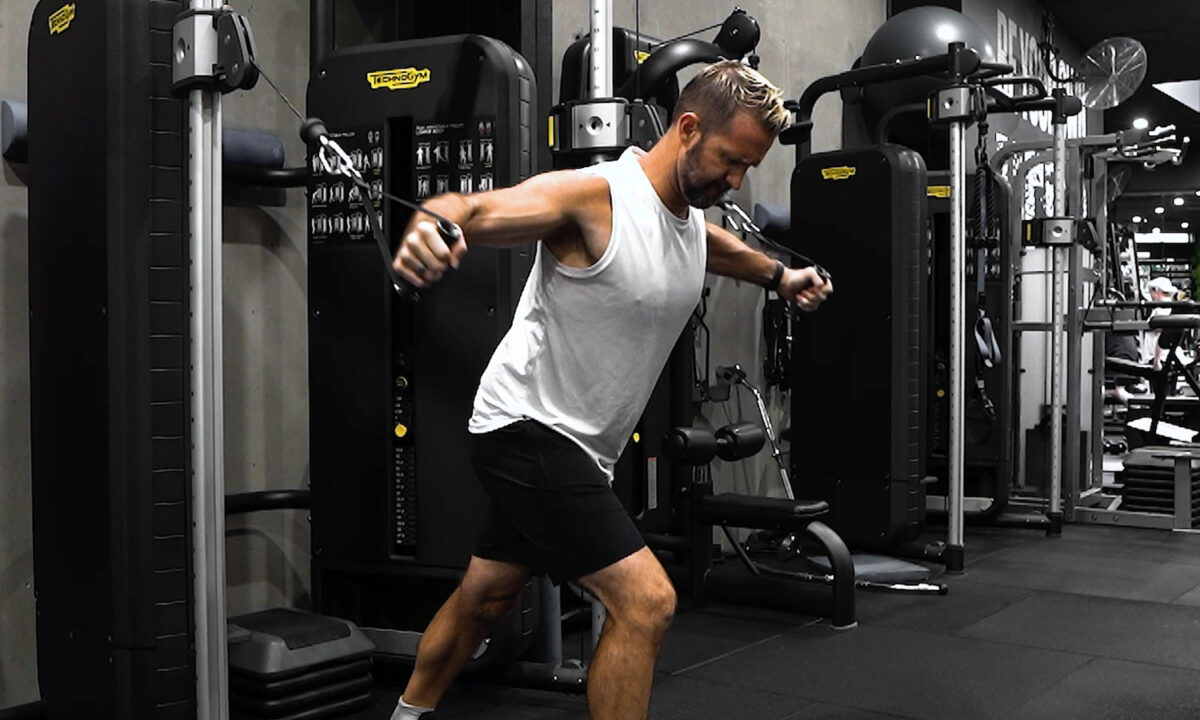
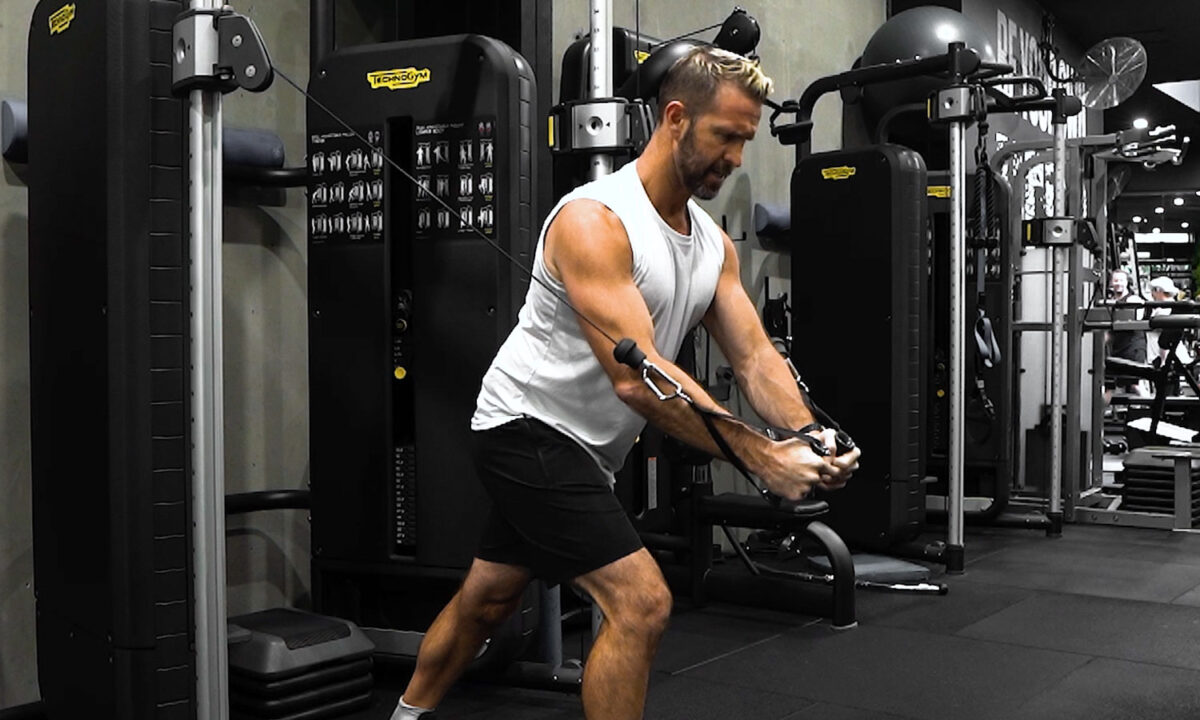
The cable fly is a great chest workout to target your pecs and delts without having to press, adding a new stimulus and variety, ideal for getting results.
How to perform: Using a cable machine, make sure the pulley is up high and ensure the hand stirrups are attached. Take one handle in each hand and outstretch your arms with a slight bend.
Make sure you have a leading foot forward, brace your core and then pull the weight down and across your body, squeezing your chest at the end of the movement. With control, slowly release your arms back to the starting position and repeat.
To progress, simply add more weight.
Sets: 4 to 5 sets with 10 to 12 reps per set
Tempo: Fast, 1 second push out, 2 second return
Kneeling Two Arm Landmine Press
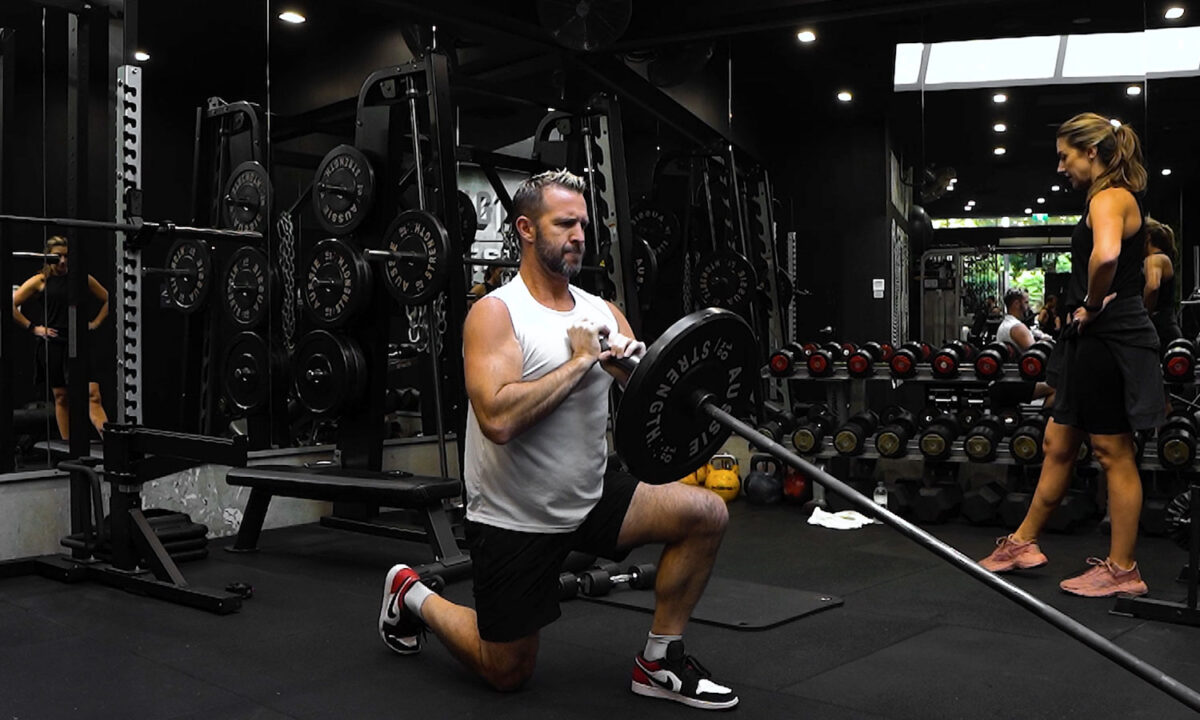
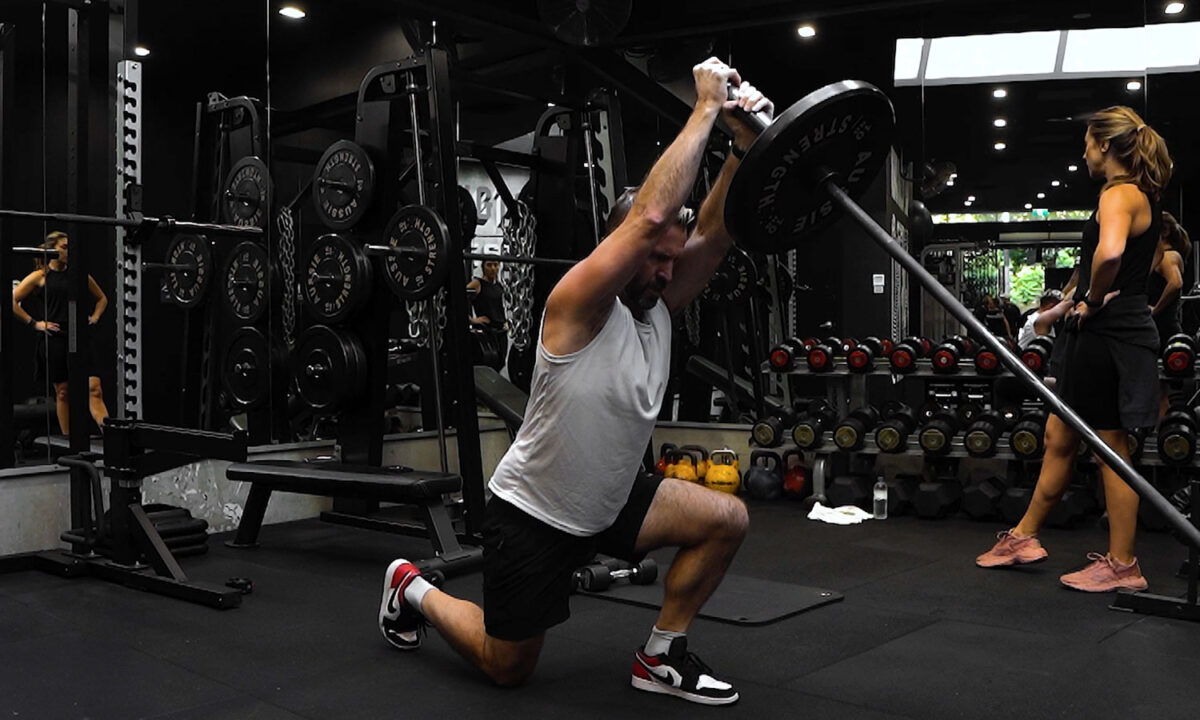
A landmine press is another incredibly effective chest exercise that some may find far easier to perform, since they take away some of the stress associated with other chest workouts.
How to perform: You’ll need to make sure your gym has the right equipment for a landmine press. You’ll need a barbell for starters, and a plate on the floor that can accept one end of the bar. You can attempt them with the bar pushed into a corner, but be careful it doesn’t slip.
Kneel down on one knee, keeping your upper body nice and tall with a neutral spine. Your shoulders and hips should be stacked on top of each other in alignment with the knee that is on the ground.
Place both hands on the end of the barbell, push upwards so the bar is over your head, bracing your core and squeezing your chest together. Not only does the landmine press torch your pecs, it also does wonders for your shoulders and triceps too.
Sets: 3 to 4 sets with 10 to 12 reps per set
Tempo: Consistent controlled tempo, 1 to 2 seconds up, 1 to 2 seconds down
Best Lower Chest Workouts
Low Cable Fly
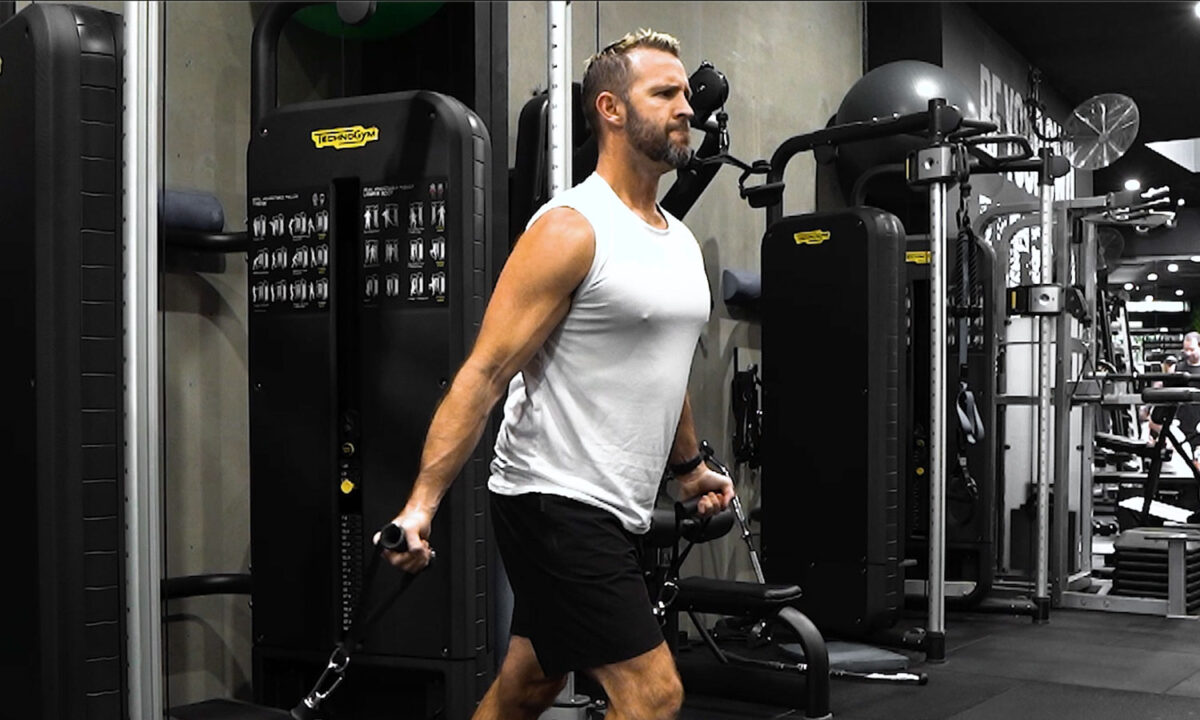
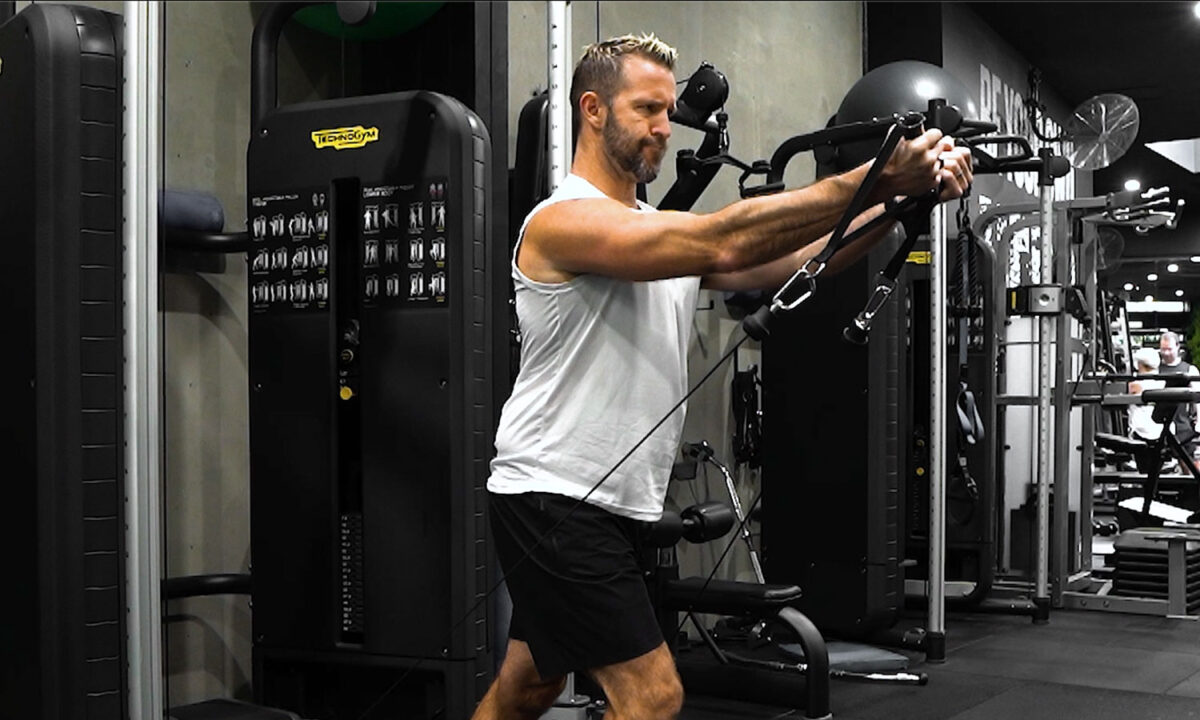
Similar to the cable fly, the low cable fly sees the same handle attachments brought down to the lowest setting on the cable machine. Using this position and bringing your arms up from this position works the lower chest instead.
How to perform this chest exercise: As mentioned, position the handles at the lowest setting on the machine. Grab one handle in each hand with palms facing forward, and put a leading leg forward.
Push your chest out and lock your shoulders down. Bring your arms up, ensuring to keep your elbows as close to your body as possible. Aim to bring your hands as close to each other as possible, and you want to finish at around mid-chest height, so you squeeze the pecs.
Return your hands to the starting position, inhaling as you do. When you repeat the exercise, exhale as you bring your arms up.
Sets: 4 to 5 sets with 10 to 12 reps per set
Tempo: Slow, 3 seconds push out, 3 seconds return
Close Grip Barbell Bench Press
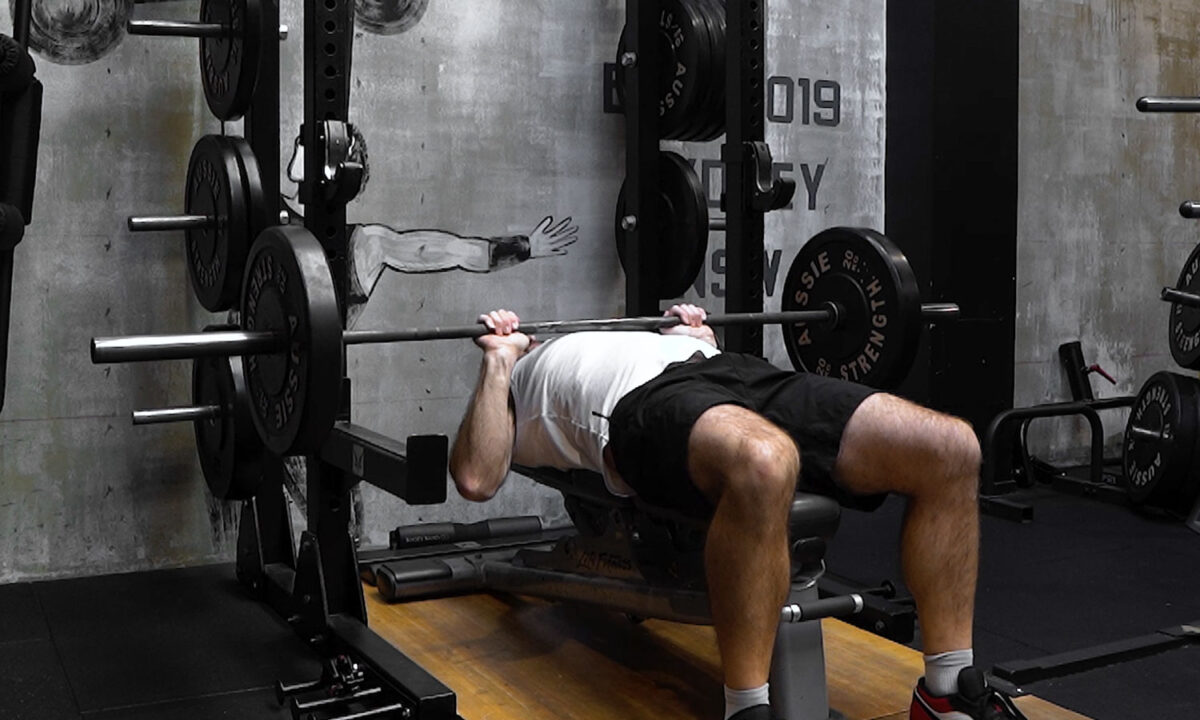
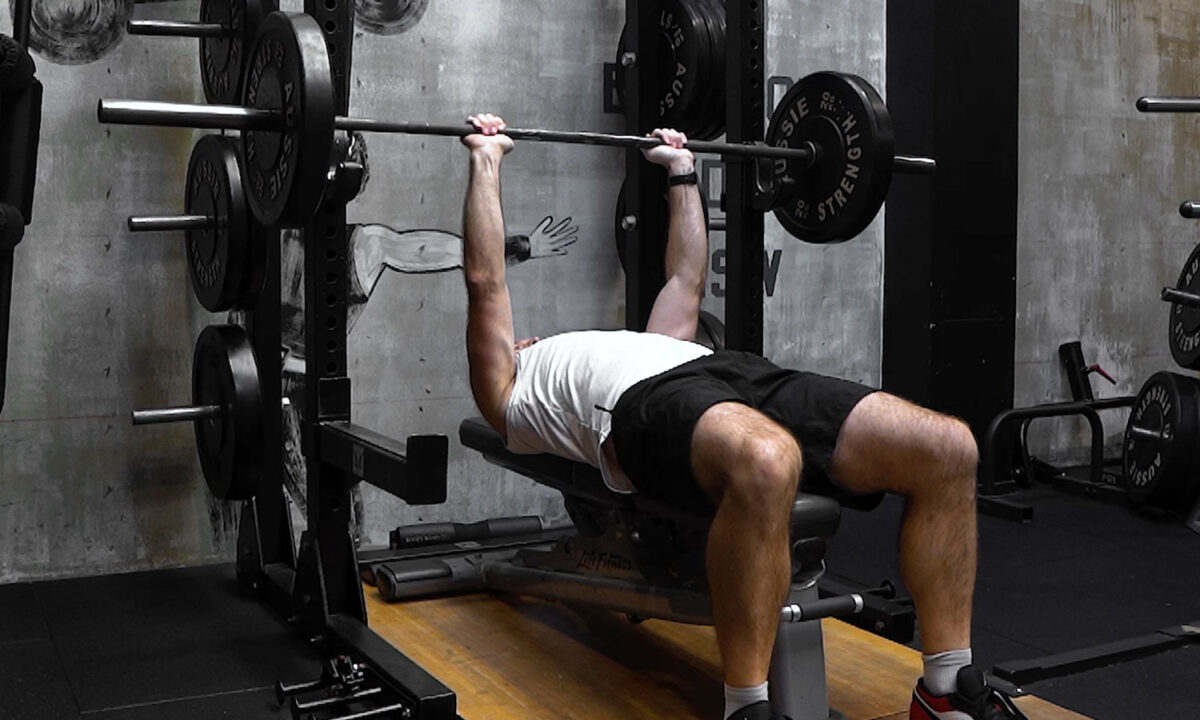
Staying with the barbell, a simple movement of hand placement can help target a different area of the upper chest. A close grip bench press is great for focusing on both your triceps and your chest while putting less strain on your shoulders.
How to perform this chest exercise: For this chest workout, stay lying down with your back at an incline, but have your hands just inside shoulder width apart.
Perform the close grip bench press in the same way as the incline bench press, breathe out as you push up, and bring the bar down slowly. Progression can be adding weight or changing the tempo again. You can also add in some tricep extensions depending on how heavy the bar is as well.
Sets: 3 to 5 sets with 8 to 10 reps per set
Tempo: 2 second push up, 2 second return
Neutral One-Arm Cable Fly
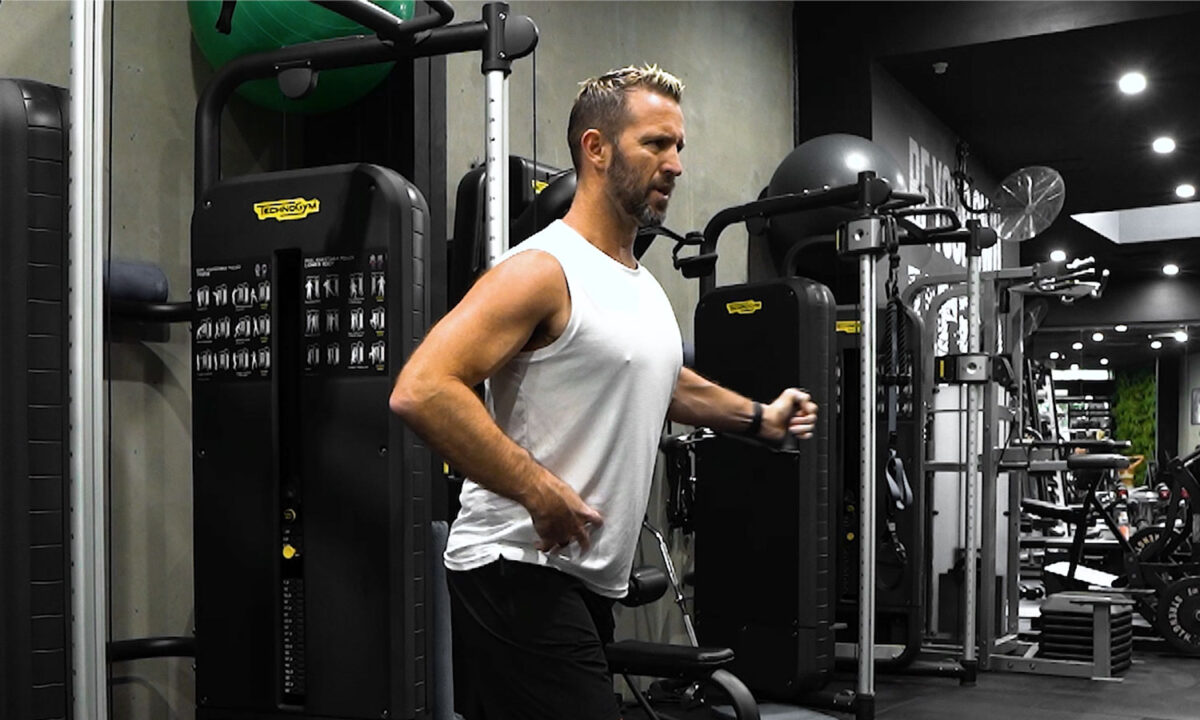
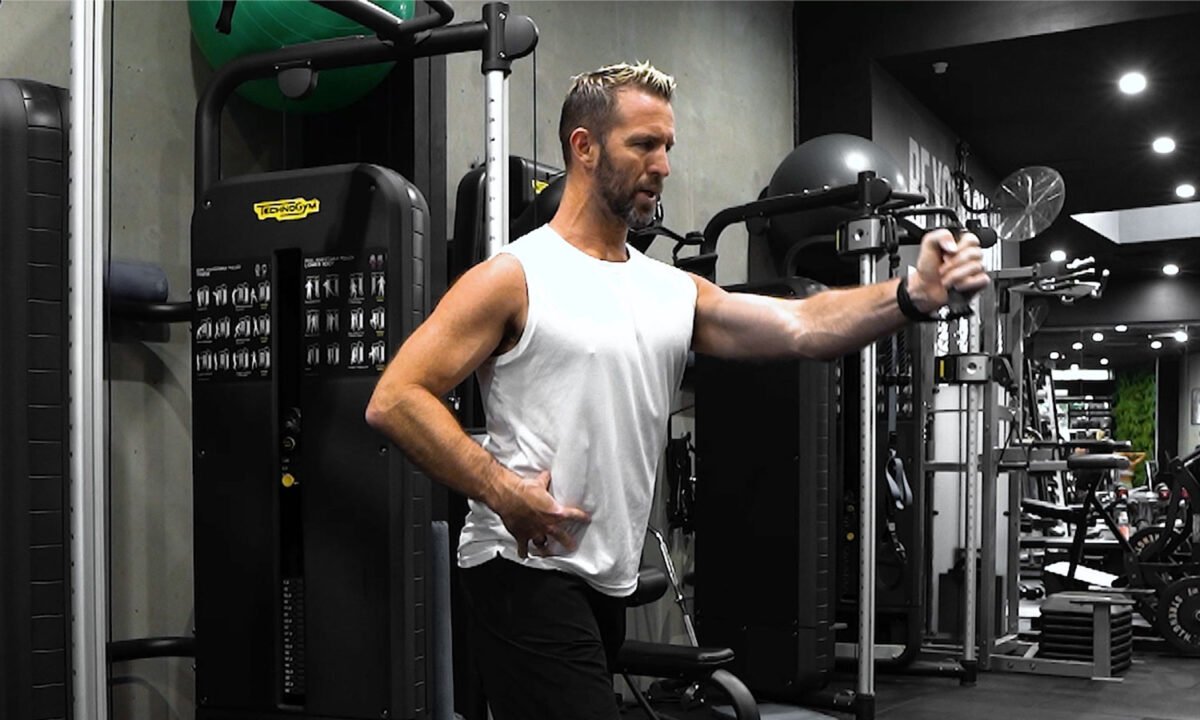
It might look great being able to perform cable flys using both arms and yes, it can be effective. But, performing chest cable fly exercises using just one arm at a time can help to increase size even further, since doing so provides more time under tension for the chest muscles. Paul Roberts, a fitness trainer at Sand and Steel Fitness says “the fly works much better in the single-arm variation because you can angle your body to achieve much more muscle engagement. The short range of motion and simplicity of this exercise lends itself nicely to long 90-second sets.”
How to perform this chest exercise: Set the cable pulley to around chest height and stand away from it to take up the slack of the cable. Hold the grip attachment in one hand in a neutral grip. Starting with your arm at around a 30-degree around, pull the handle grip across your body until your arm reaches 90-degrees.
Aim to keep your arm straight throughout the duration of the movement and move it slowly so as to maximise the time under tension delivered to the pec major muscles. Once you reach a 90-degree angle, hold and squeeze your chest, before slowly returning the cable to the starting position.
Sets: 4 sets with 8 to 10 reps per arm, per set
Tempo: 3 seconds pull, 3 seconds return.
Decline Bench Press
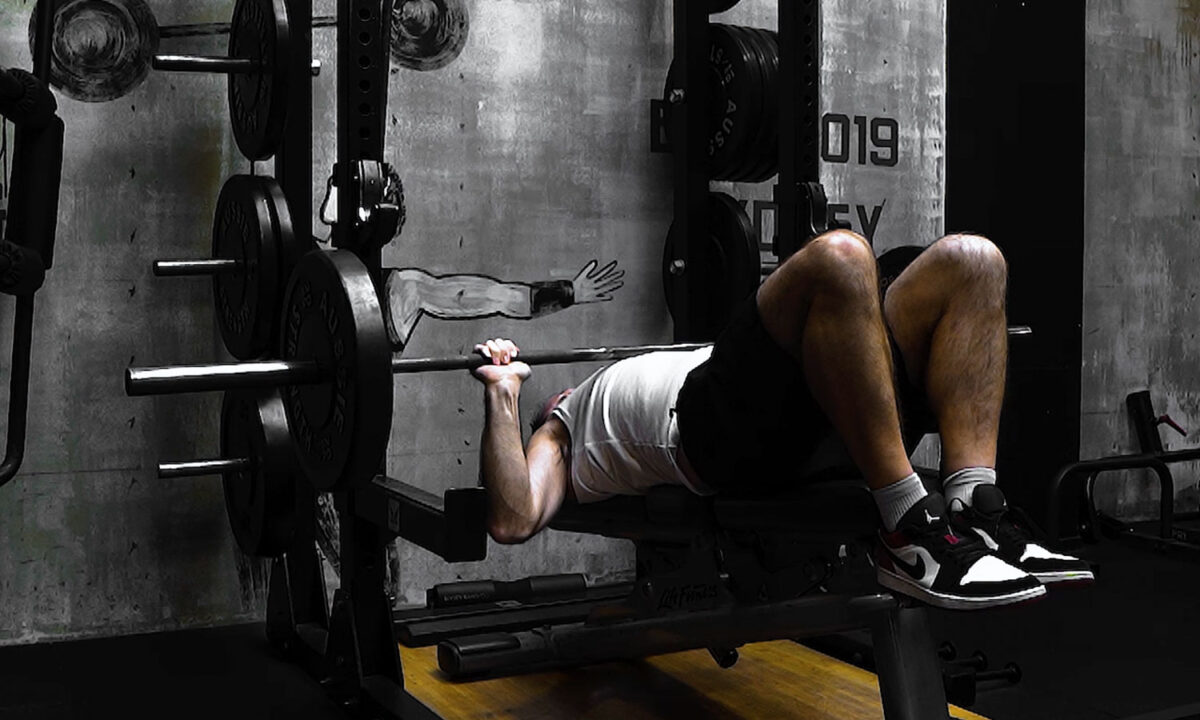
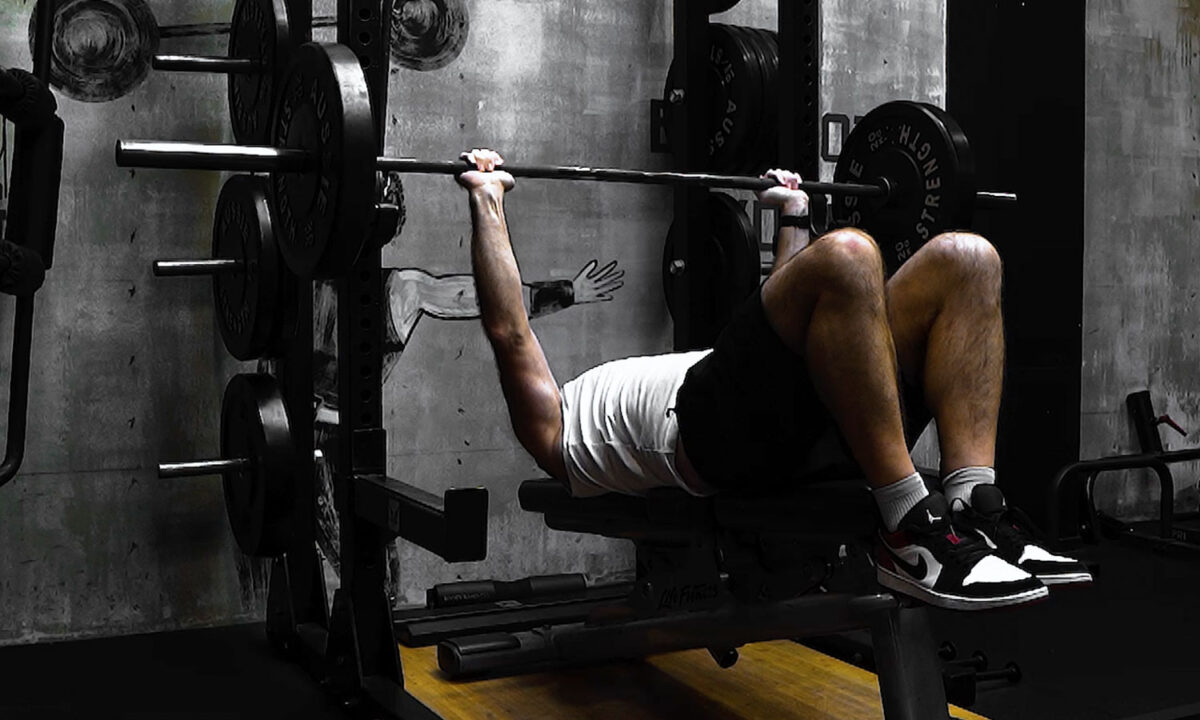
The decline bench press is one of the three main bench press exercises you can (and should) perform to help target the entire pec area. You should aim to perform a decline bench press in conjunction with a flat bench press and an incline bench press, if possible.
Muscleandfitness.com cites a study conducted by Wayne State College in Nebraska as saying ” both upper and lower-pec fibers are engaged during decline press (-15 degrees) while only upper-pec fibers are engaged during incline press (+30 degrees).” The takeaway? The decline bench press is an absolute must.
How to perform this chest exercise: The best way to perform the decline bench press is to use a decline bench press station at your gym. If your gym doesn’t have a dedicated station, then you can perform a decline dumbbell bench press using just a muscle bench that has a declining angle.
Alternatively, you can lie down on the floor and bend your knees so that your upper body is on the ground. From here, you can perform a decline dumbbell floor press to get similar results.
But, using a decline bench press station, position the bar so that you can reach it easily from the decline position. Add plate weights if necessary. Unrack the bar and slowly lower it down towards your chest so that it is in line with your nipples. Inhale your breath during this portion of the movement.
Next, push the bar back up to the starting position. You don’t necessarily need to lock out your arms, as having a slight bend will maintain tension on the lower chest muscles. If you do lock out your arms, make sure to squeeze your pecs at the top of the movement. Exhale during the push up.
Repeat for the desired number of reps and sets. If you’re goal is to increase strength, perform low reps with higher weight, but for size, perform higher reps with lower weight.
Sets: 4 sets with 5 to 12 reps per set, depending on goal.
Tempo: 3 seconds down, 1 second up.
Best Chest Workouts For Mass
Chest Dip
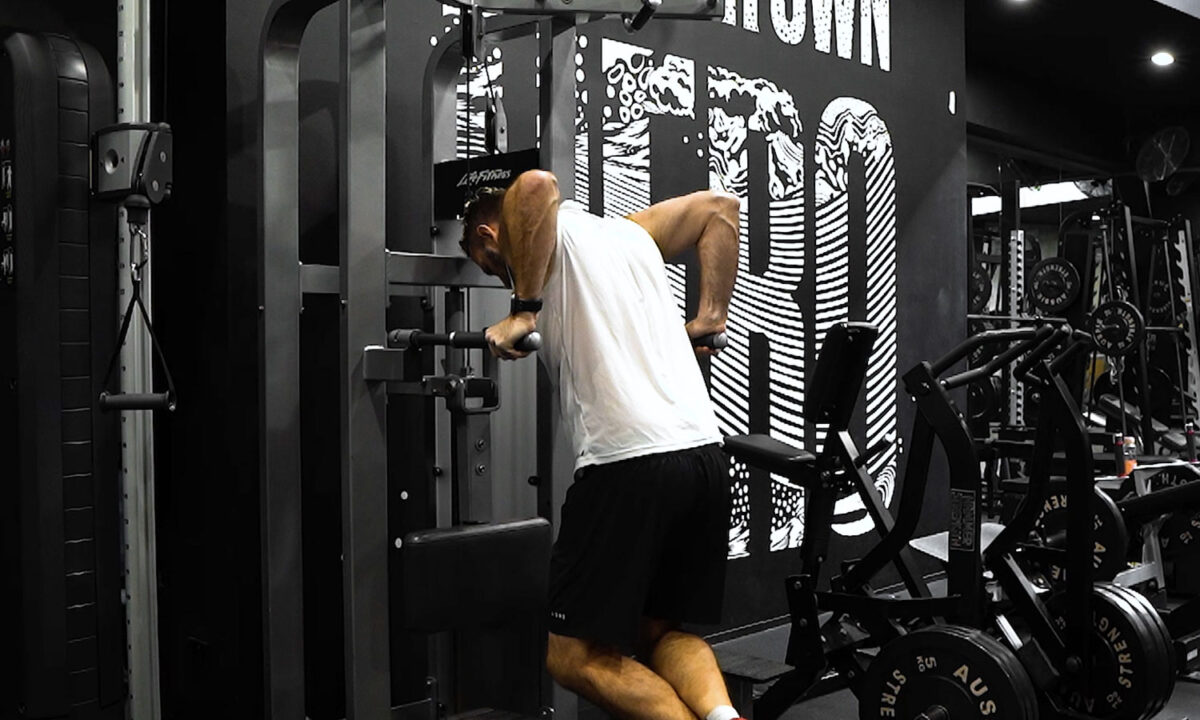
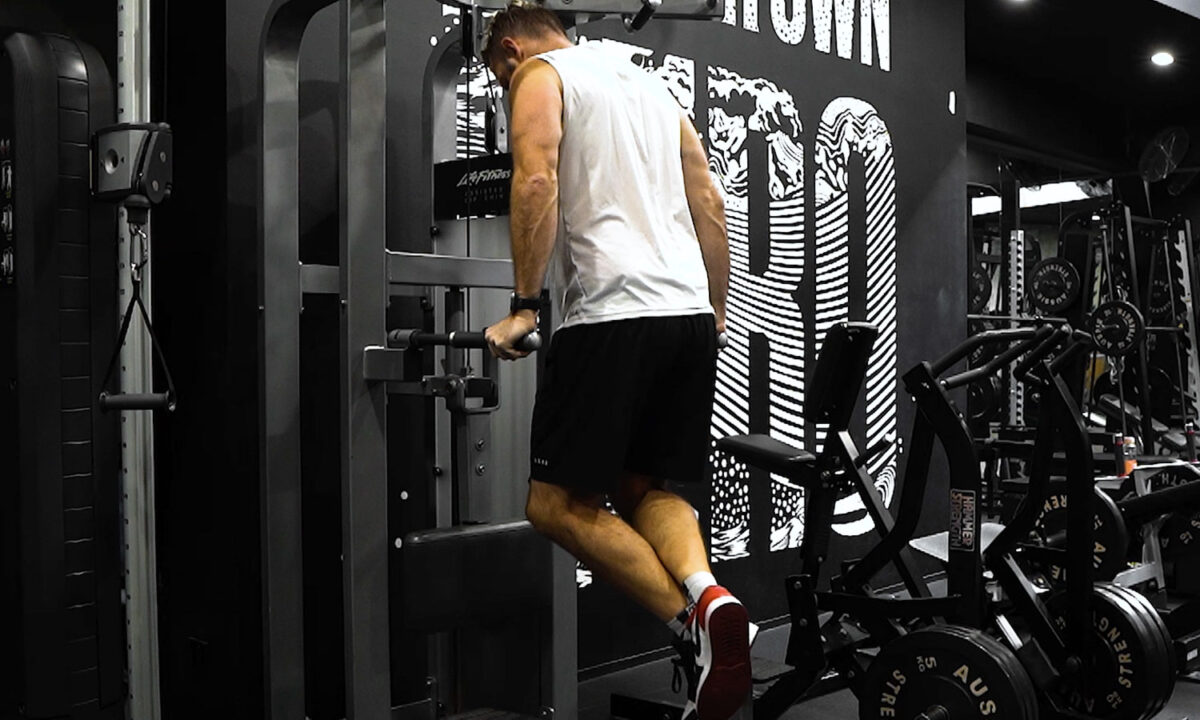
Chest dips are not only great for working your chest but also your shoulders, upper back and arms. Why? Because as you lower yourself down into the dip, you fight to stabilise your body which maximises the results.
How to perform: Go to the dip station and grab the bar. Make sure your arms are straight with your palms facing inwards. Slowly lower until your elbows are at right angles. Then drive yourself back up. Make sure you tuck in your core so your body stays tight.
To progress, add reps or if you really want to, add some weight in the form of a weighted vest.
Sets: 3 to 4 sets at maximum reps until failure
Tempo: 2 to 3 seconds lowering down, fast 1 second push up
RELATED: The Ultimate Chris Hemsworth Workout Guide
Barbell Bench Press
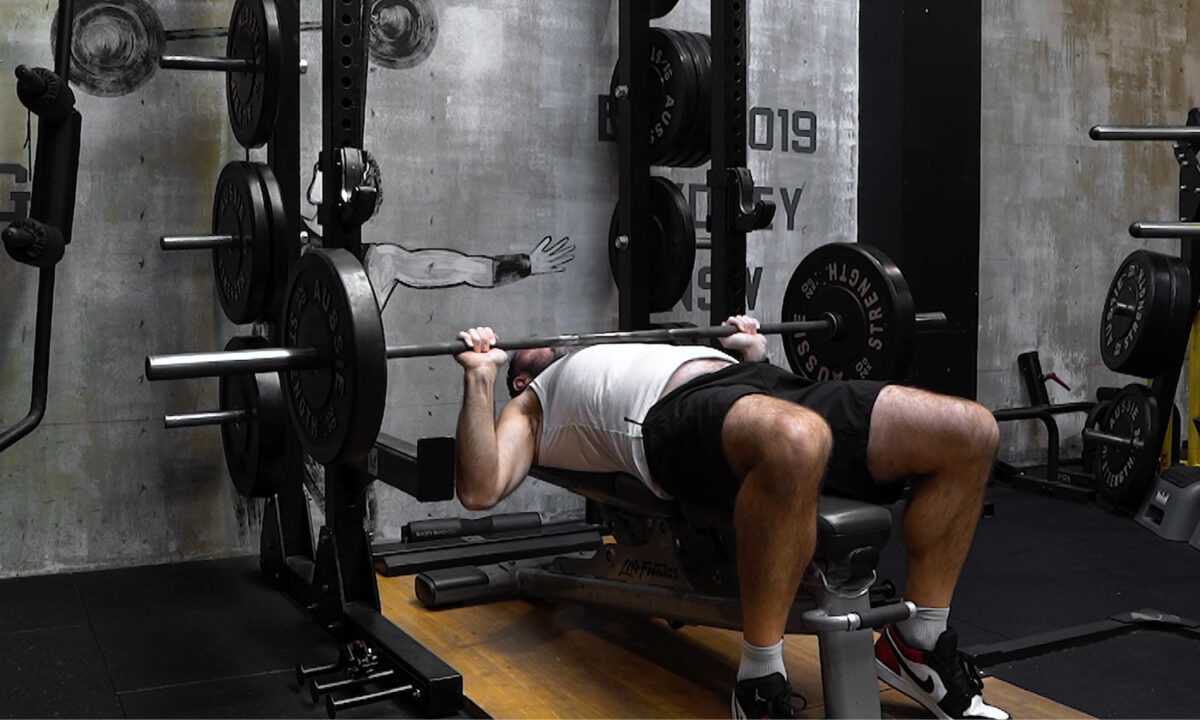
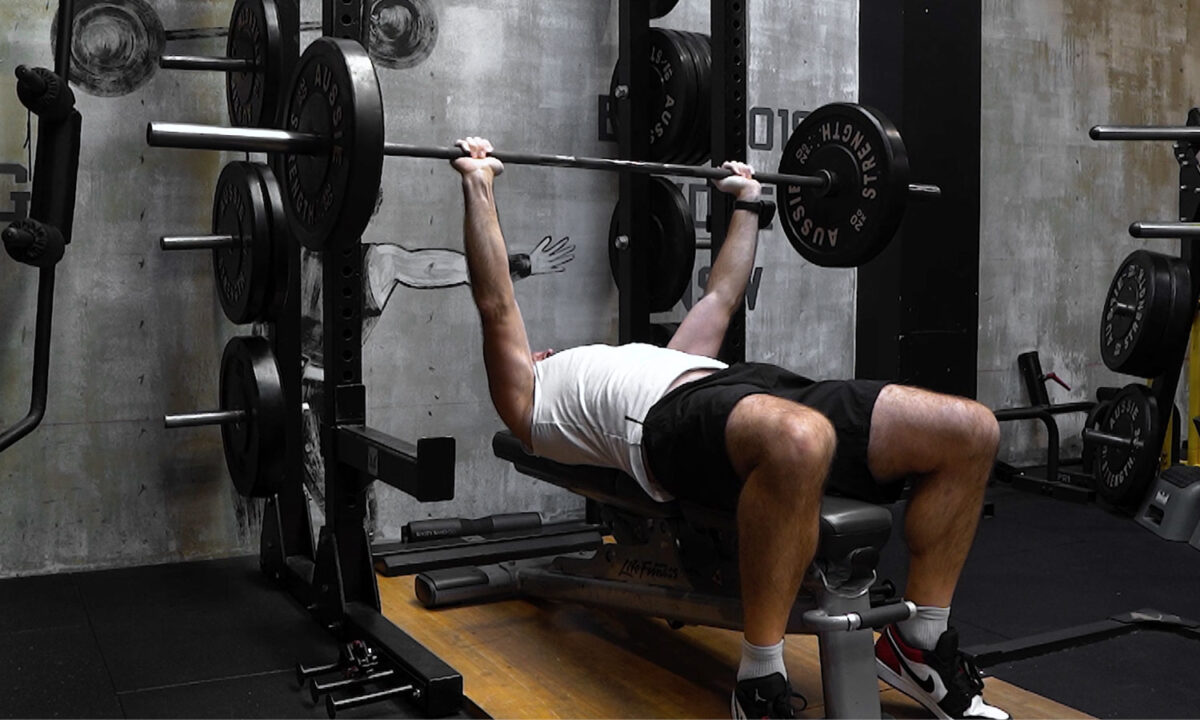
The one we all know and love, the barbell bench press. Essentially the same as the incline bench press, this classic chest workout sees you lying down on a flat bench, parallel to the ground. There’s a reason it’s so loved, the barbell bench press is perfect for achieving some serious size in your pecs.
How to perform: Grab the barbell with a overhand grip, ensuring your wrists remain straight and your hands are set to wider than shoulder width apart. Keep your shoulders locked down and bring your feet close to the bench to help give you extra stability and driving force.
Lift the bar off the rack, breathe in as you lower it down to your chest so that it is inline with your nipples. Then, forcing your body and feet into the floor, breathe out and push the bar up. Squeeze your chest when you reach the top of the movement, with your elbows locked out.
To process with the bench press, you can either adds more weights to the bar, perform for a higher number of reps, or add in another set.
Sets: 3 to 5 sets with 8 to 10 reps per set
Tempo: 2 second push up, quick 1 second return
Best Dumbbell Chest Workouts
Dumbbell Bench Press
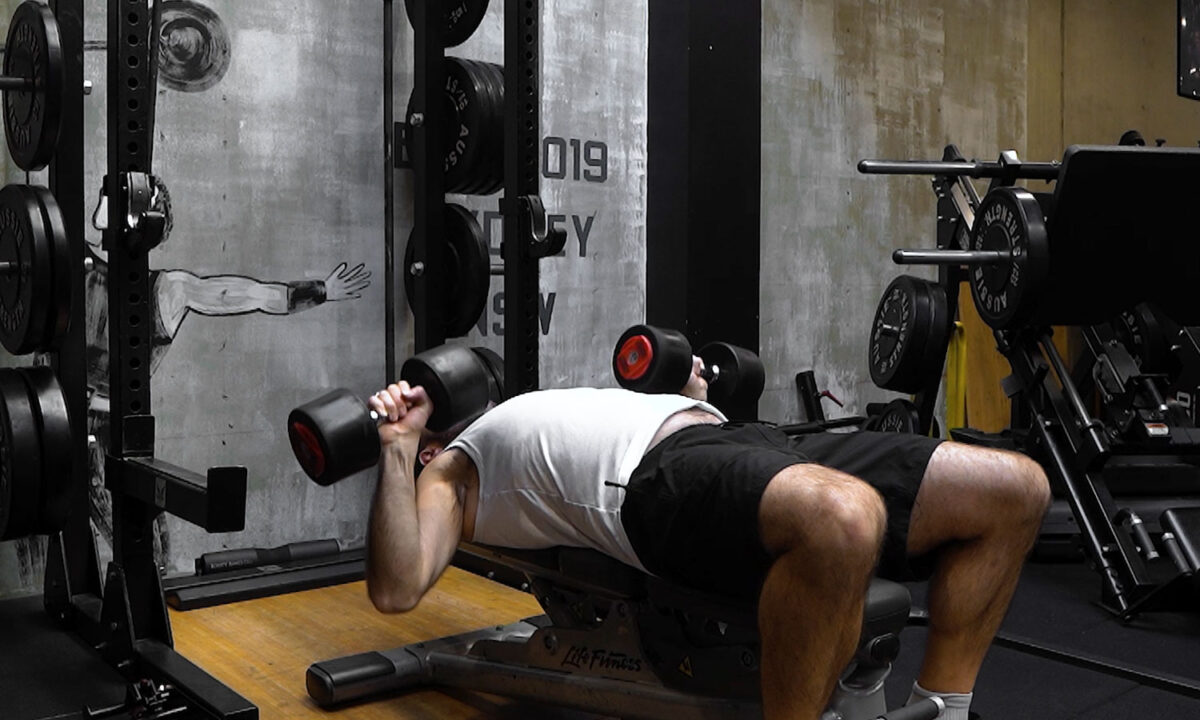
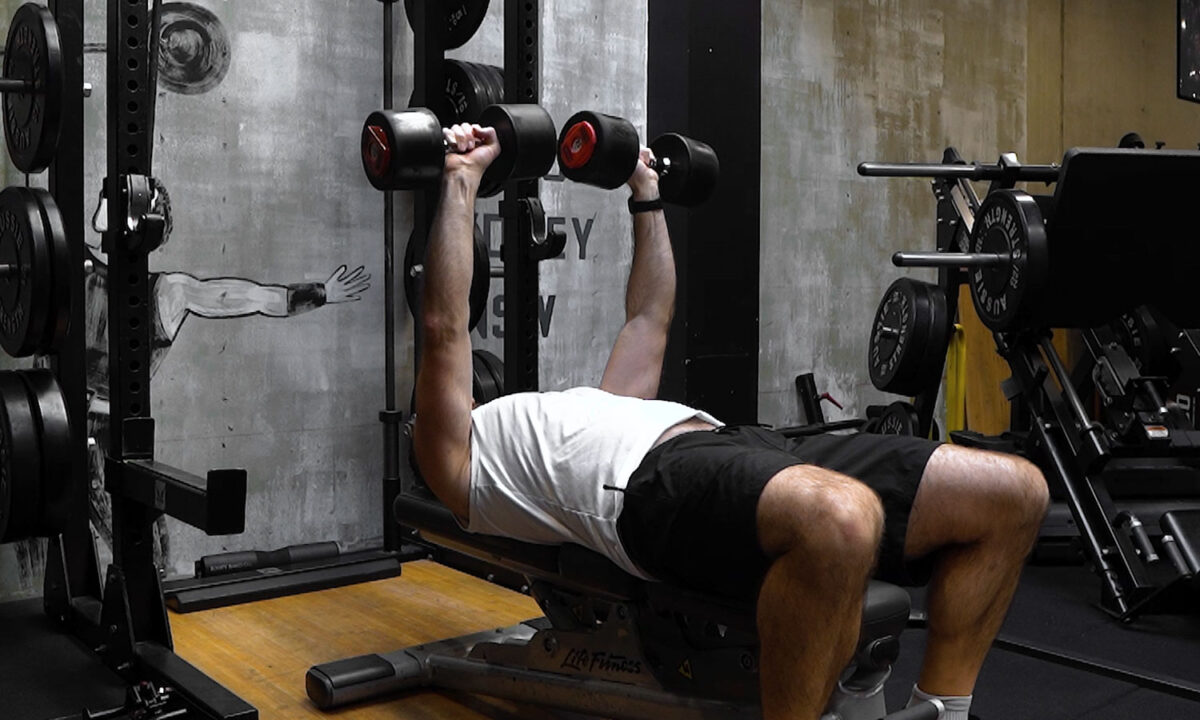
The dumbbell bench press is another chest workout staple. While not a replacement for the barbell bench press – although decidedly more effective – using a pair of dumbbells does have its advantages. Namely, they allow your arms to go through their full range of motion, allowing greater tension to be placed on more of your chest muscles.
How to perform: As with the bar bench press, the dumbbell bench press can be performed lying down flat, on an inline or on a decline. For the purposes of this description, we’ll be going with the lying down flat variant.
Taking a dumbbell in each hand, lie down on the flat bench with your arms out beside you and a slight bend in your elbow. You may be inclined to have your elbows set at a right angle, but a far more effective position is to have your wrists turned to 45-degrees. You can also adopt a neutral grip – palms facing inward – if you wish.
Press the dumbbells up, keeping the movement slow and controlled and using your planted feet for extra stability. Lower the dumbbells back down and past your shoulders, before pressing up again.
You want to aim to move the dumbbells close to each other as you reach the top of the exercise, but don’t let them touch.
Sets: 3 to 5 sets with 10 to 15 reps per set
Tempo: 2 to 3 seconds push up, 2 second return
Dumbbell Flys
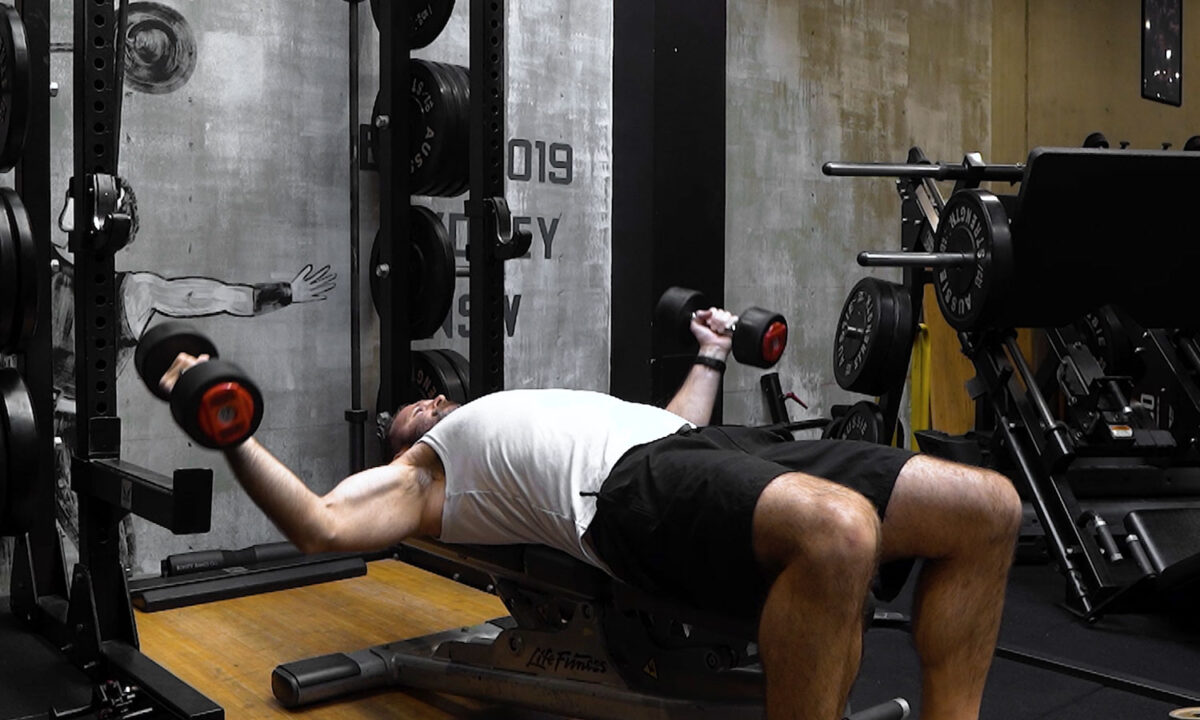
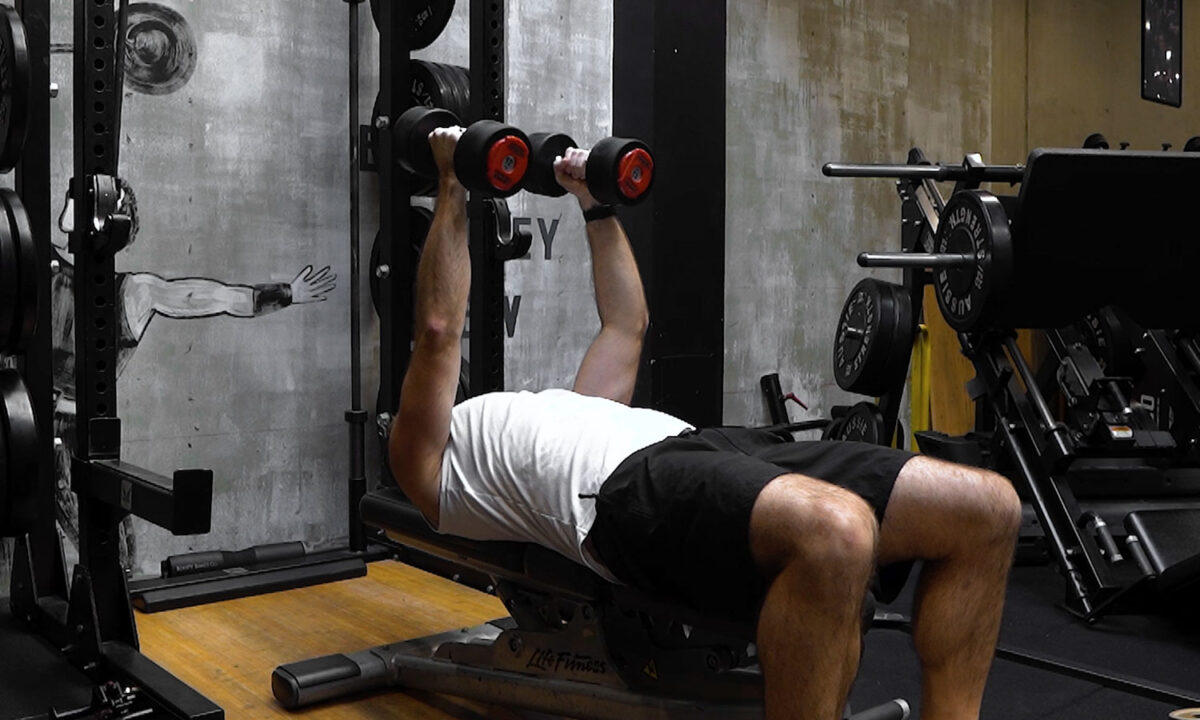
The dumbbell fly offers a great alternative to the bench press, although we would recommend you include both in your chest workout routine. The dumbbell fly is a perfect chest exercise to build size, and to help create a defined separation where your pectorals meet your shoulders. One thing to note when performing the dumbbell fly, is that you’ll want to lower the amount of weight compared to what you bench, you just won’t be able to lift it.
How to perform: Lie down flat on a bench – the dumbbell fly can also be performed at an incline – with your feet flat on the ground. Taking a dumbbell in each hand, position them both up in front of you, above your chest, with palms facing each other. Slowly lower your arms out to your sides, ensuring you put a bend in the elbow. Keep lowering until your elbows are in line with your torso – it’s important you don’t overstretch and lower your arms too far.
Engage your chest muscles to bring the dumbbells back to their starting position, ensuring you’re not using your arms instead (a perfectly common mistake).
Sets: 4 sets with 8 to 10 reps per set
Tempo: 3 seconds down, 3 seconds up
Close Grip Dumbbell Chest Press
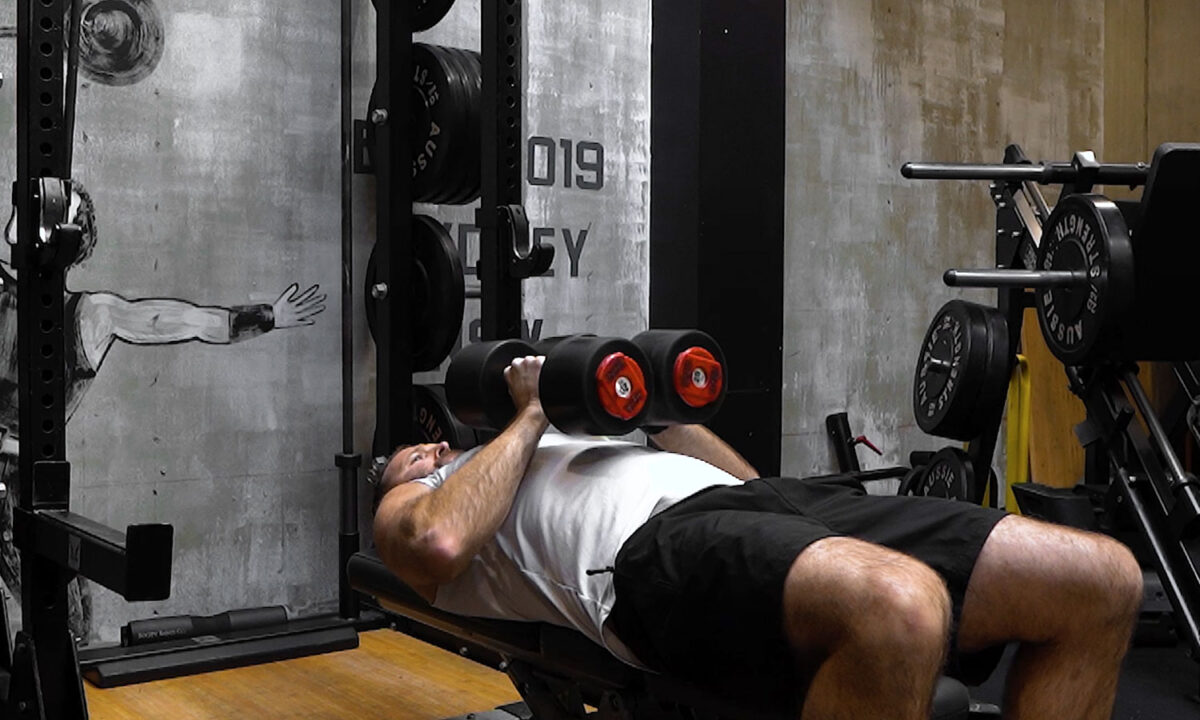
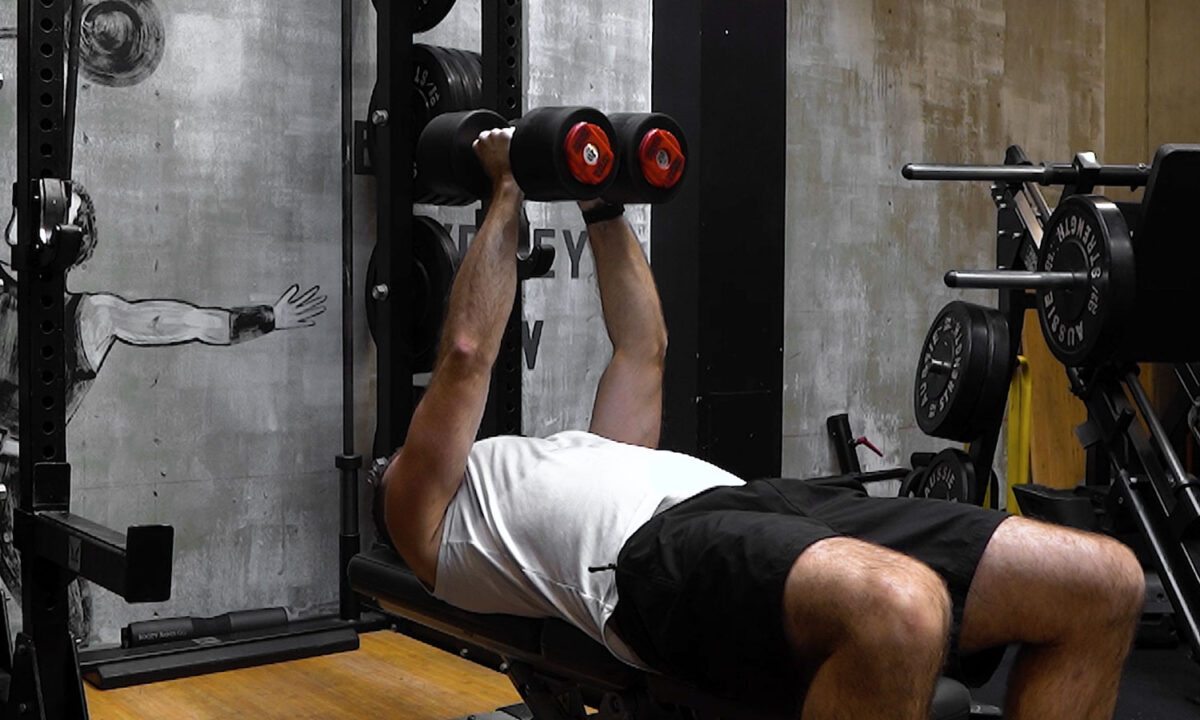
Also known as the ‘crush press’ the close grip dumbbell chest press is a strength-based chest exercise that targets your chest muscles and even the triceps. Unlike some other dumbbell chest exercises, you should be able to use relatively heavy weights, since you’ll be using virtually all of the chest muscle group to push the dumbbells upwards.
How to perform: Holding a dumbbell in each hand with a neutral grip (palms facing inwards), lie flat on a bench, keeping the dumbbells close to the centre of your chest. With your shoulders pinched together, push the dumbbells into each other and press them up above you until your arms lock out. When pressing up, use as much explosive power as you can. When you reach the top of the movement, make sure you squeeze your pecs for a second or two.
Slowly bring the dumbbells back down towards your chest, still ensuring you’re pushing the weights into each other as you do so. Lower them down until they touch your chest, and repeat.
Sets: 4 sets with 8 to 10 reps per set
Tempo: 1 second up, 3 seconds down
Best Home Chest Workouts
Push-Ups
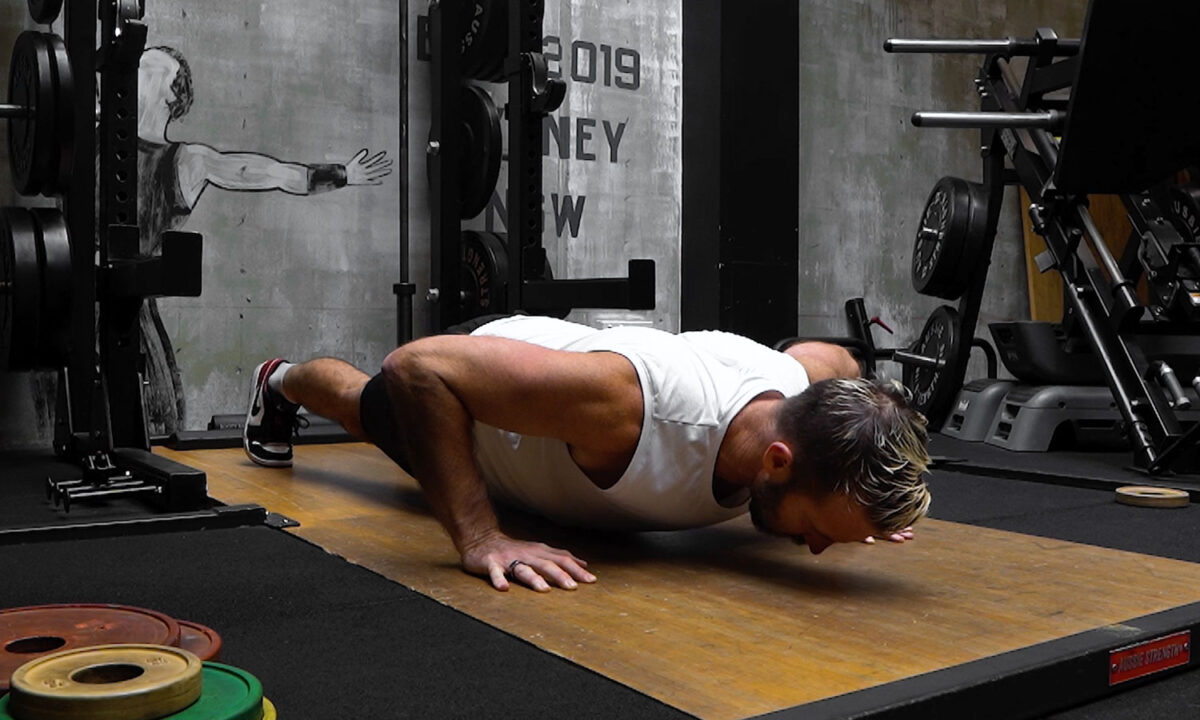
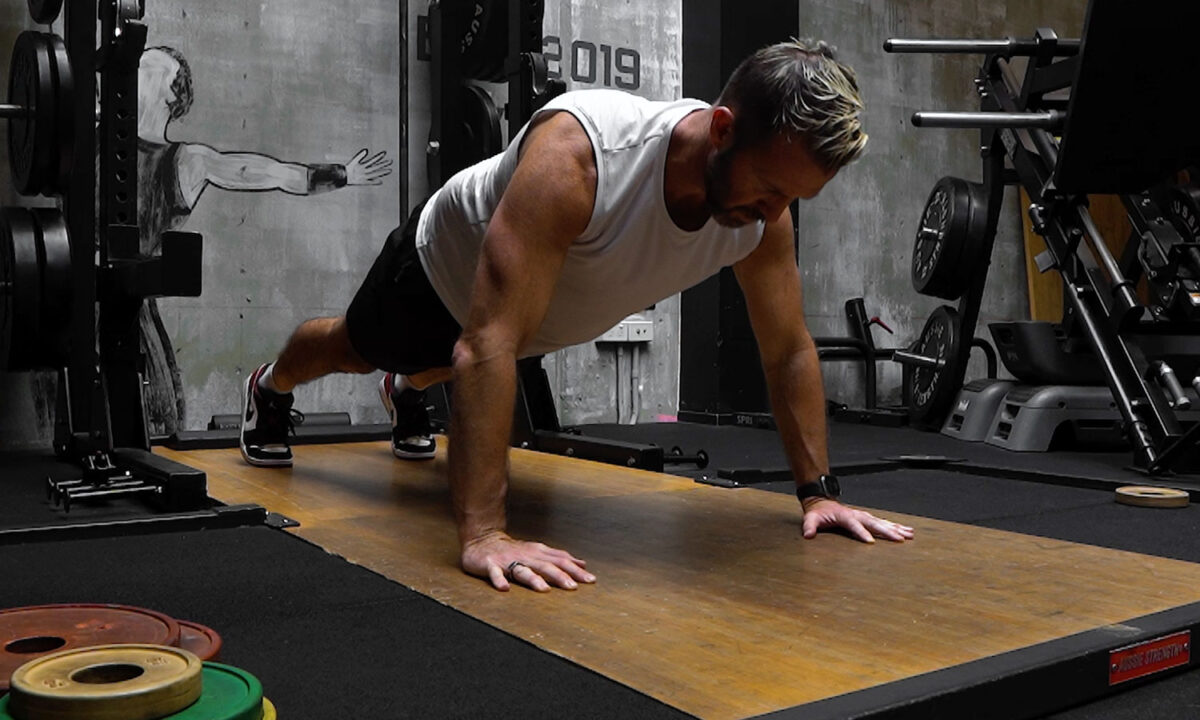
Push-Ups are one of the best chest workout exercises, but it can be all too easy to get the form wrong. Common mistakes with push-ups include arching the back, with your torso falling towards the ground. But best of all, because you don’t need any equipment, you can perform them literally anywhere, including at home.
How to perform: To perform an effective push-up, get yourself into a position on the floor with your arms straight and you’re on your toes. Tuck in your pelvis so that your core is braced, keeping your back straight at the same time. If you can do these in front of a mirror to check your form, you’ll soon see the benefit.
Lower your chest to the ground, keeping your elbows close to your body. It’s ok if they flare out a little bit, but you don’t want to end up with them being at right angles to your upper body.
Inhale as you lower yourself, and exhale as you push up to your starting position, when your arms are straight.
Push-ups are incredibly effective at working a multitude of muscles in the upper body, not just the chest, and you can do them practically anywhere since you don’t need any equipment.
Sets: 3 to 4 sets with maximum reps to failure
Tempo: As long as they’re performed with the right form, you can set your own tempo. A consistent 1 second down, 1 second up is a good place to start.
Other Chest Workouts
Gymnastics Rings Push-Ups
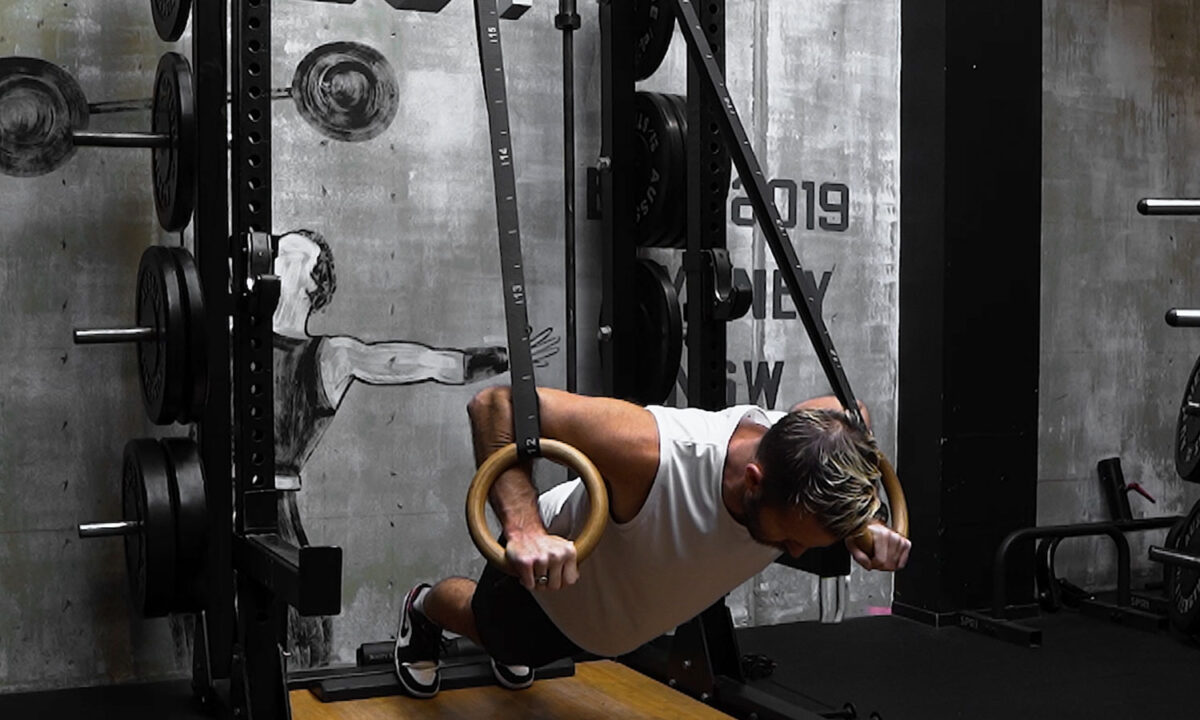
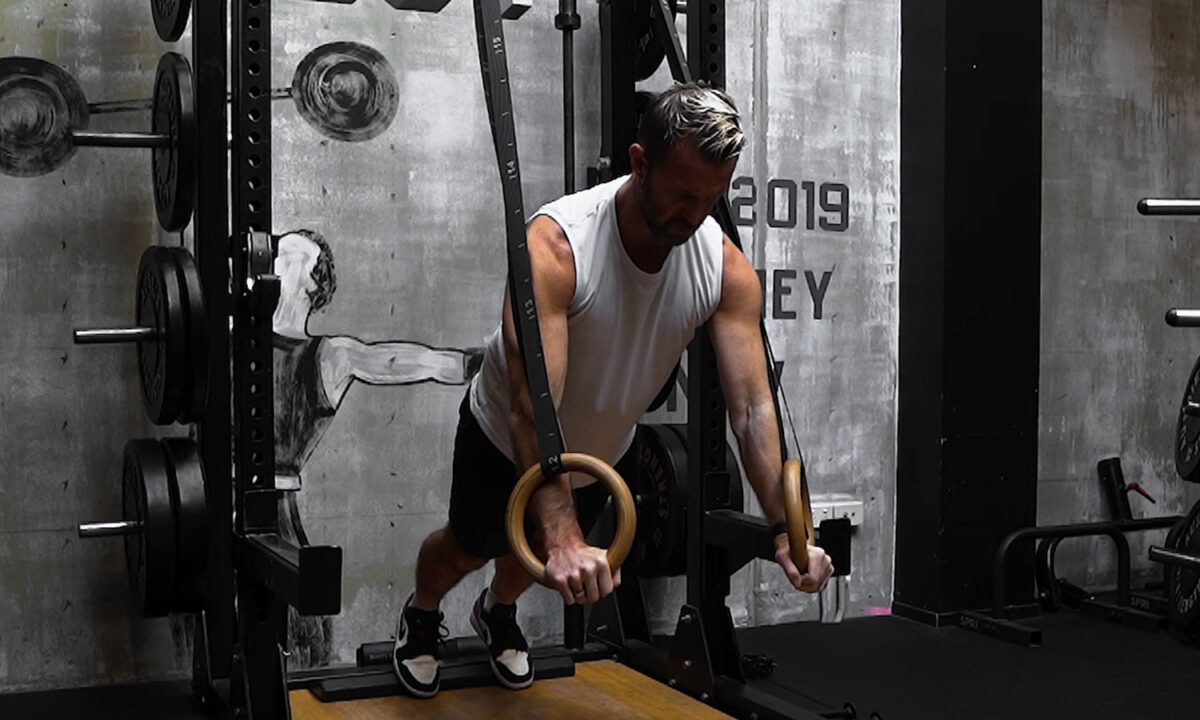
Using rings allows you to get a deeper pec stretch because they can move freely. On top of that, they can protect your shoulders. If you have some gymnastic rings or if you’re doing exercises in a gym that is properly equipped, this exercise should be on your list.
How to Perform This Chest Exercise: First things first, get your rings ready. Arrange your pair in such a way that they are hanging about a foot from the floor. Grip the rings with your arms in a straight position and take a plank position. Make sure you grip the rings shoulder-width apart.
Lower your body towards the floor while squeezing the rings hard and keep going until you feel your pecs stretching considerably. Then, quickly press back up. If you want to boost the resistance even more, elevate your feet.
Sets: 3-5 sets with 5-12 reps per set
Tempo: 5 to 6 seconds down, quick 1-second return
Cable Iron Cross
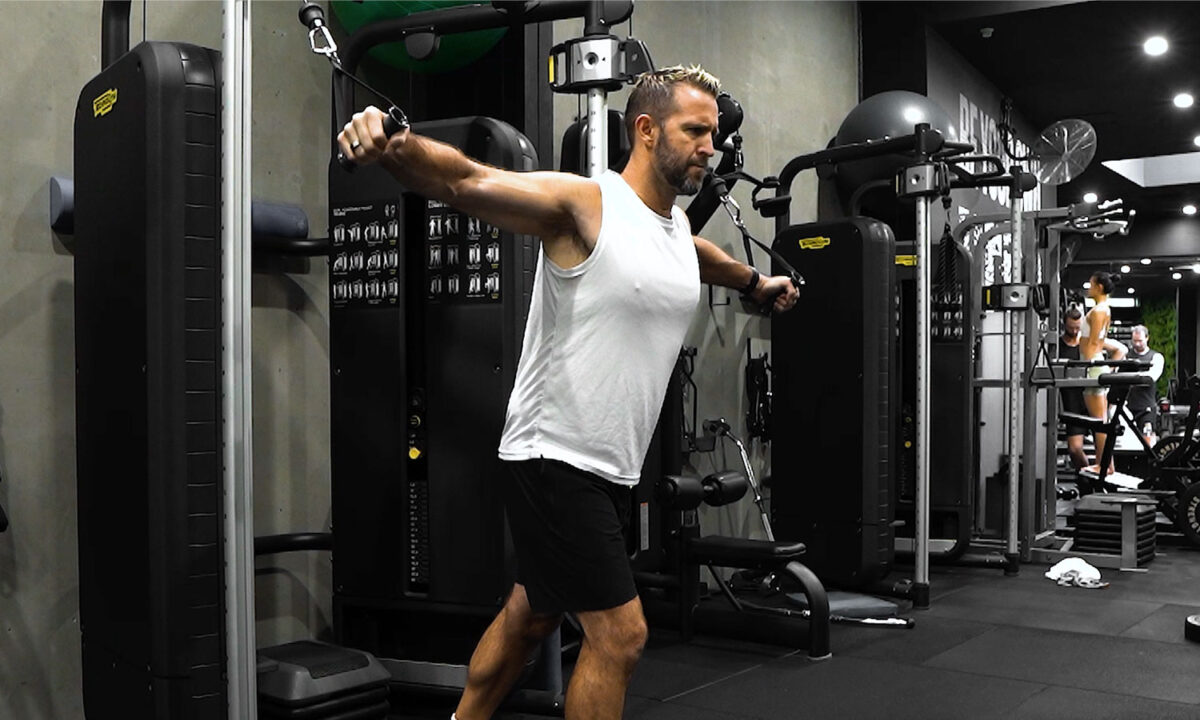
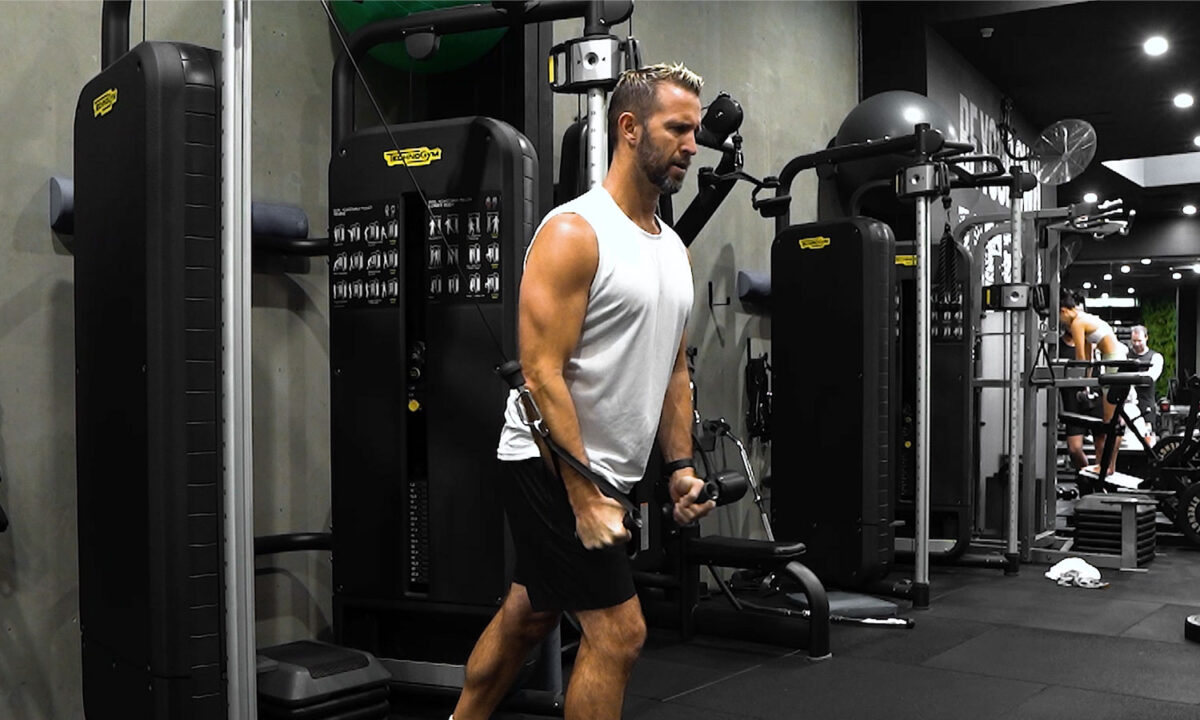
Doing the cable iron cross can be amazing for the development of your chest muscles. It’s a popular exercise in gymnastics, and it can stretch your chest muscles and help you reach your goals faster. Because it adds tension to the working muscles, it has a greater potential to help you build your pecs. What’s even better is that it can even involve the lower chest area, which is usually harder to reach.
How to Perform This Chest Exercise: At the cable machine, set the handles at both ends and make sure they’re at the highest level. Then, take a staggered stance right in the center, and grab both handles. While slightly bending your elbows and keeping the spine in a neutral position, begin to lean forward with your torso. Make sure the core stays tight.
Pull the handles down and across your body. When finishing the movement, squeeze the chest muscles.
Sets: 2-3 sets of 12-15 reps each
Tempo: 3-4 seconds of stretching, 1-second return
Guillotine Press
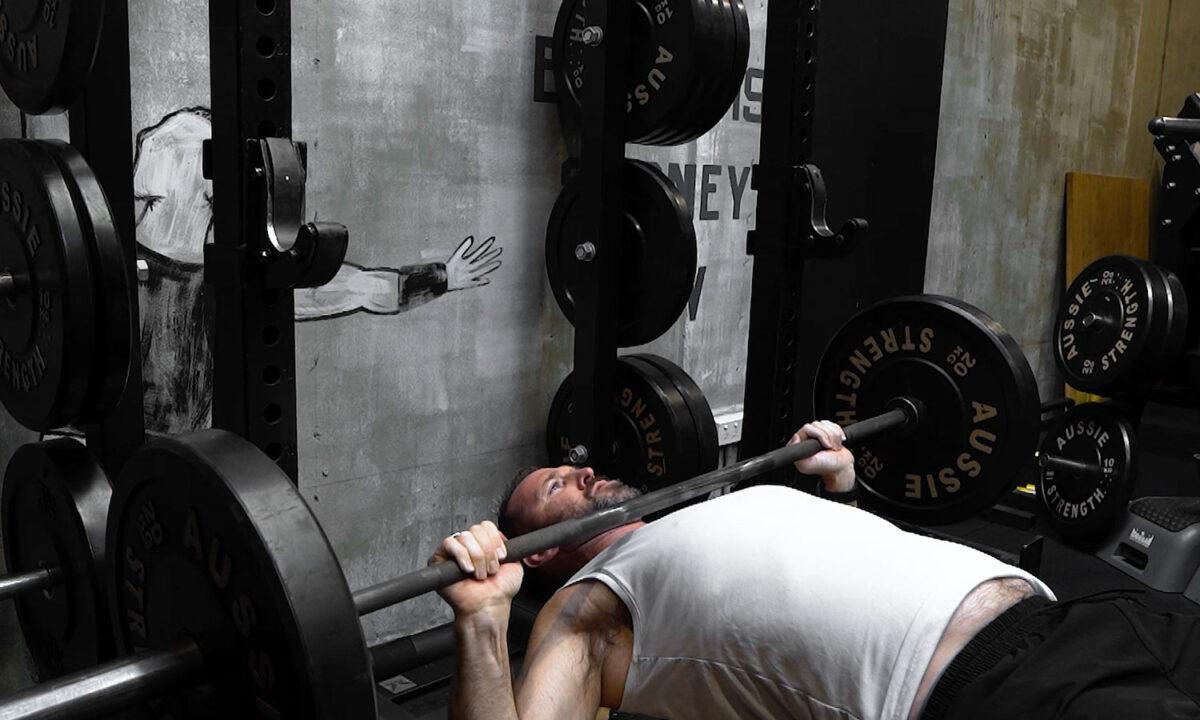
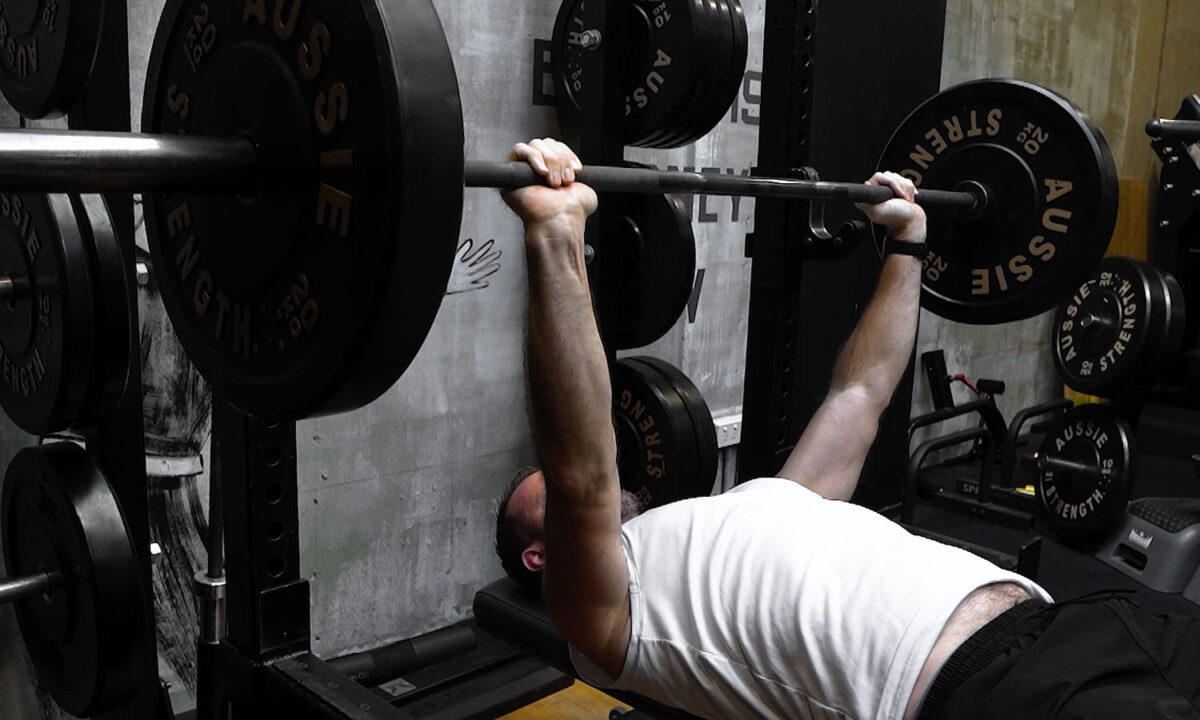
This is a very popular exercise, particularly for men who like a challenge. The movement can be a bit challenging for the shoulders, yet it is great when you want a deeper pectoral stretch. So, if you want to grow a bigger chest, this exercise is the way to go because it’s quite useful for the top of your chest.
How to Perform This Chest Exercise: Choose a flat bench and lay on it. Make sure the bench is in a rack, so you have access to your barbell.
Now, grip the barbell with both arms outside of your shoulder width, then un-rack the bar. Lower the barbell slowly until you feel a touch on your chest and keep your elbows around 90 degrees to the body. After it touches your chest, quickly back up the bar to lockout, then repeat the movement.
Sets: 3-5 sets of 8-15 reps
Tempo: 3-4 seconds to lower the bar, quick 1-second return
Chaos Push-Up
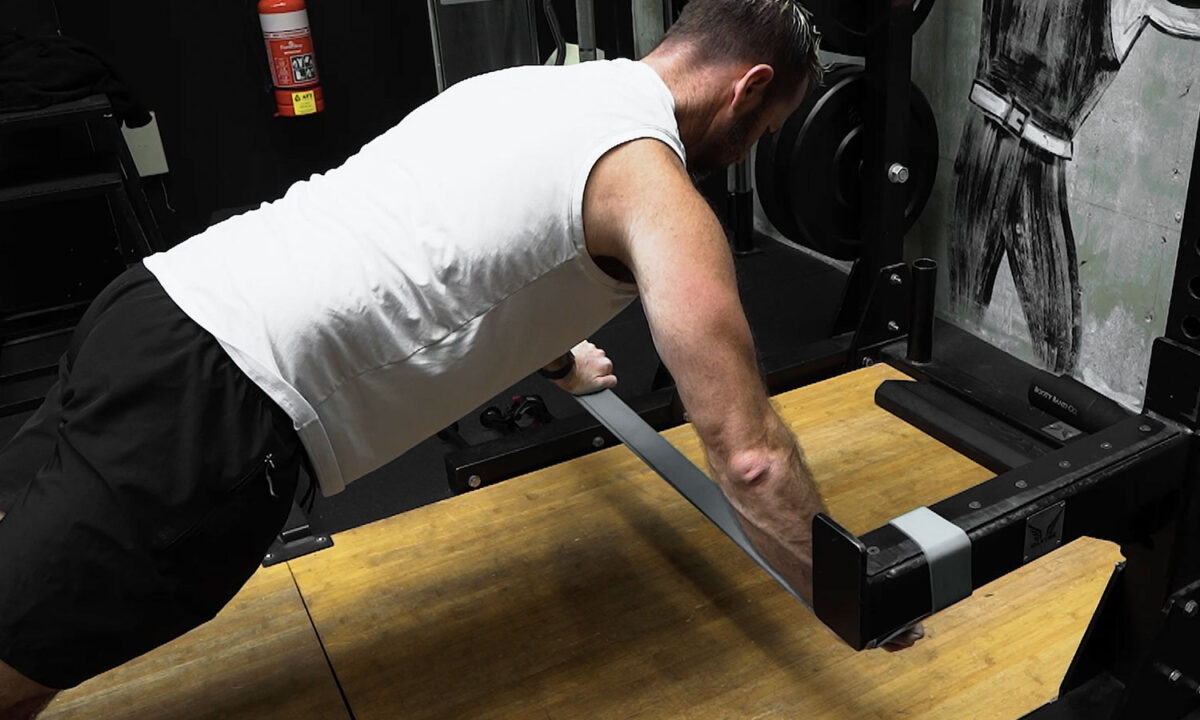
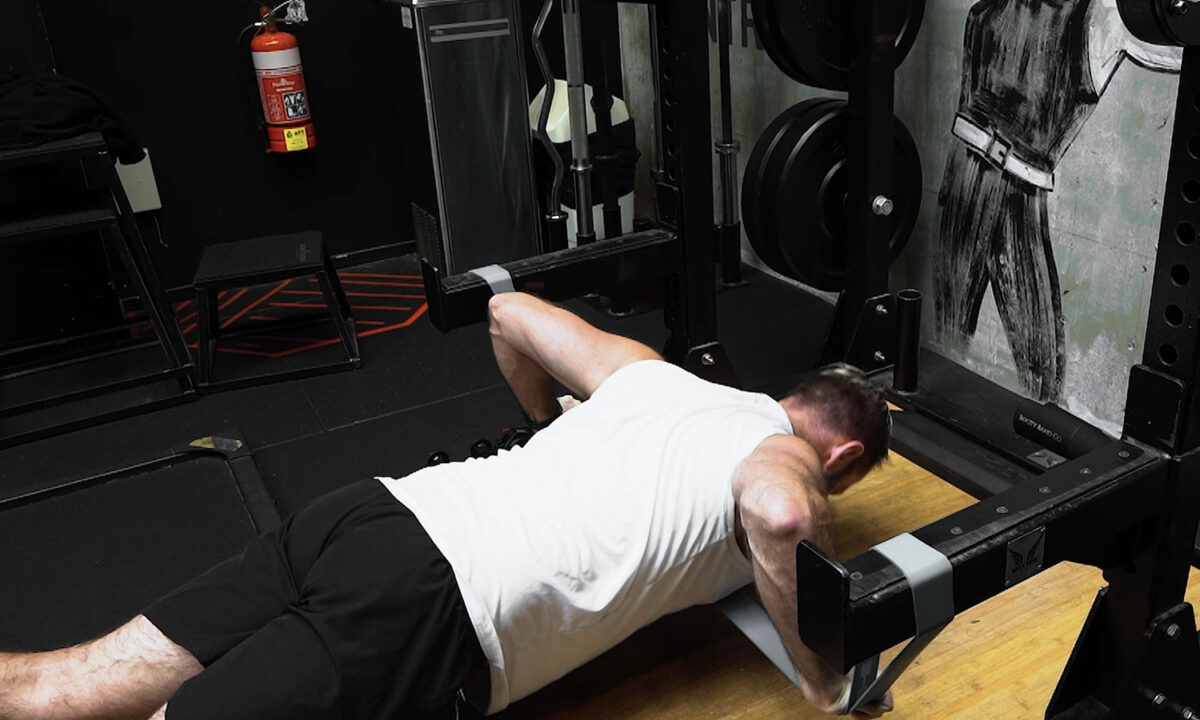
You can also build a nice chest with resistance bands. They are a great tool, and you can use them as part of the chaos push-up exercise. This can help fire up all your stabilizing muscles due to the instability of the resistance bands.
How to Perform This Chest Exercise: At the squat rack, loop a heavy-duty band around it. Ideally, when you’re just getting started, you should put the band as high up as possible, because it’s making the exercise easier while lowering it increases the challenge.
Next, put your hands on the band while gripping at the width of your shoulders, and do a tight grip. Your legs should be brought behind you. Get your core and glutes engaged. Lower yourself down into a push-up slowly and press up against your band.
Sets: 2 sets of about 10 reps each
Tempo: 3 seconds of lowering, 2 seconds push-up
Standing Banded Press
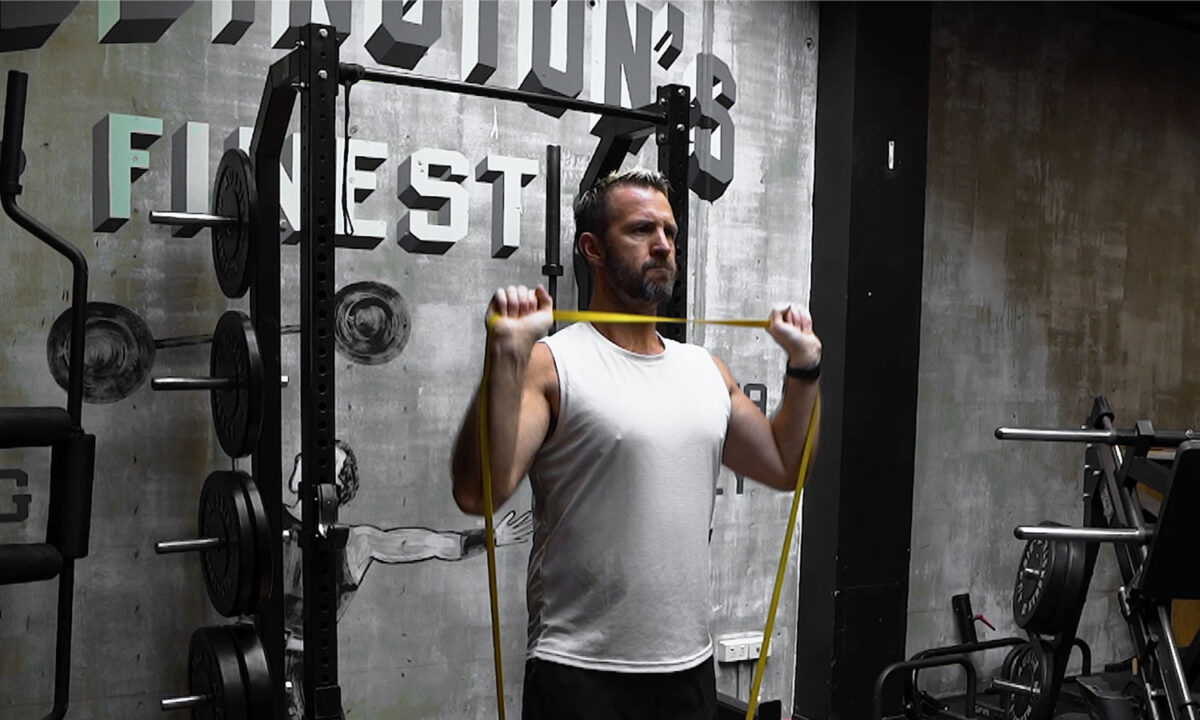
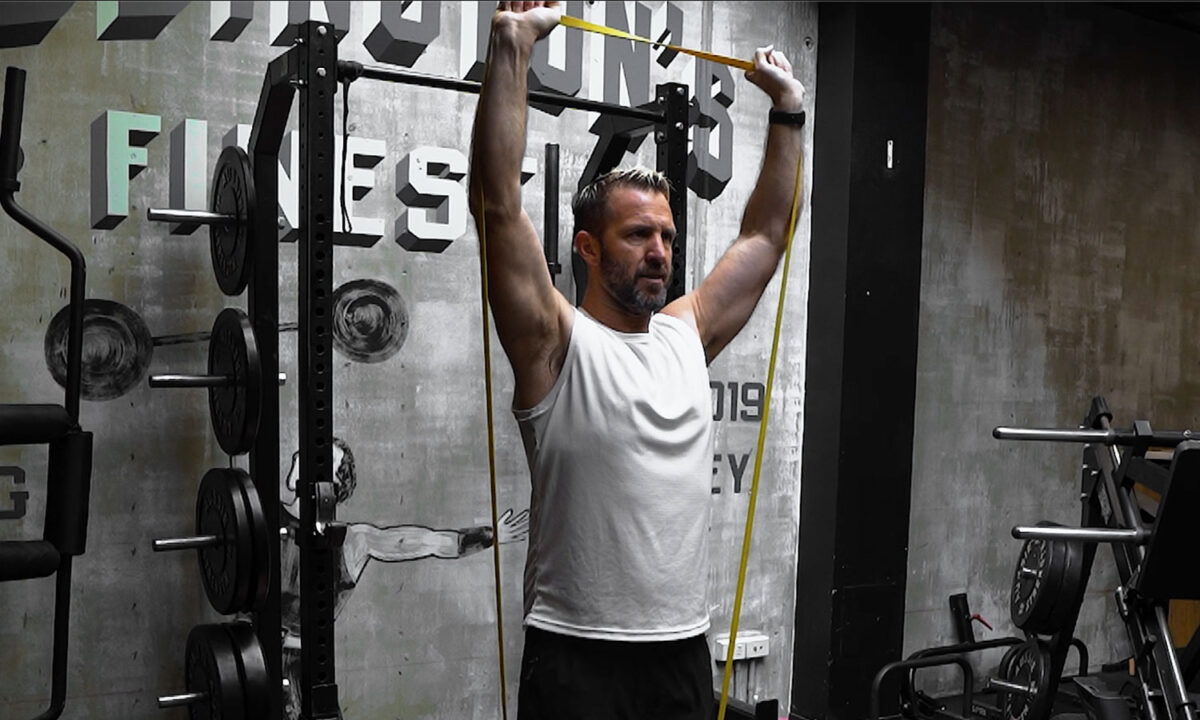
Resistance bands can also help you perform the standing banded press. This exercise makes a great chest muscle-building method, and it can recreate chest-building cable moves. With some flex and stretch, you’ll be able to see pec gains very soon after adding the exercise to your schedule.
How to Perform This Chest Exercise: Take two resistance bands and loop them around anchors and above head height. They should be around 2-3 feet apart.
Each hand should grab one band while you keep your back to the tools. Then, you must step forward until your pecs stretch due to the tension of the bands. Make sure your elbows remain at a fixed angle, and that you bring your fists together when you pull against the bands. In the end, return your arms to the initial position. Repeat the exercise several times.
Sets: 3 sets with 10-15 reps
Tempo: 3-4 seconds for the stretch, 2-3 seconds for the return
Svend Press
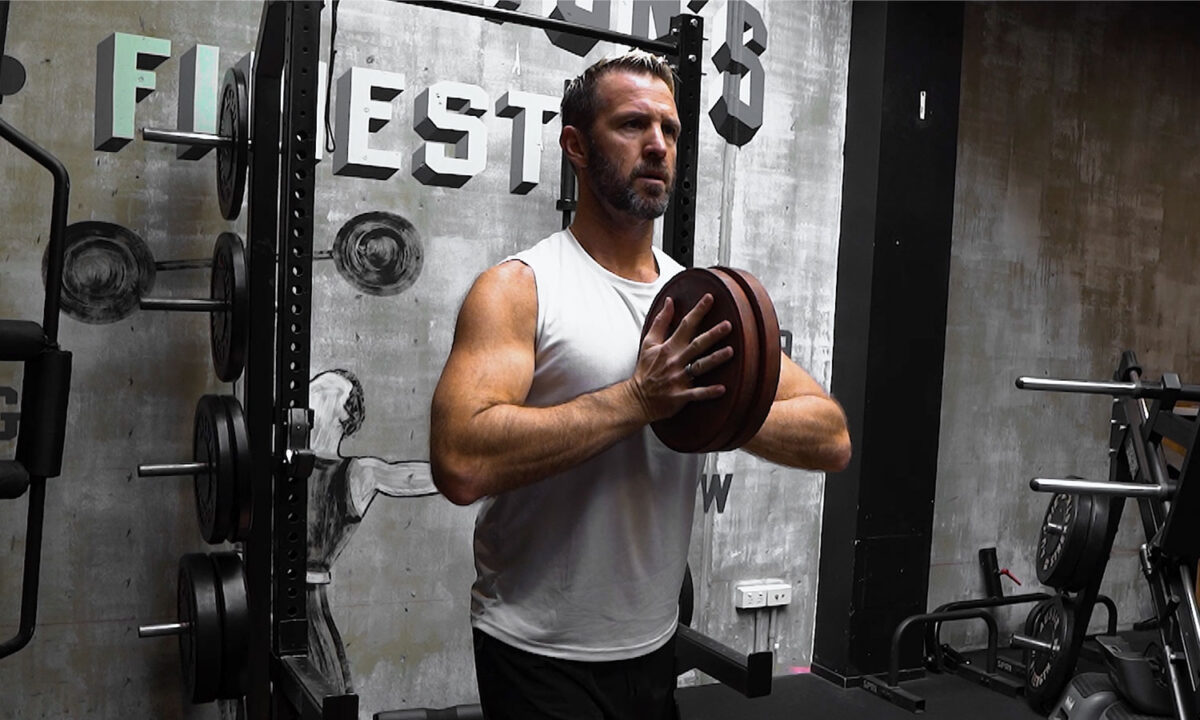
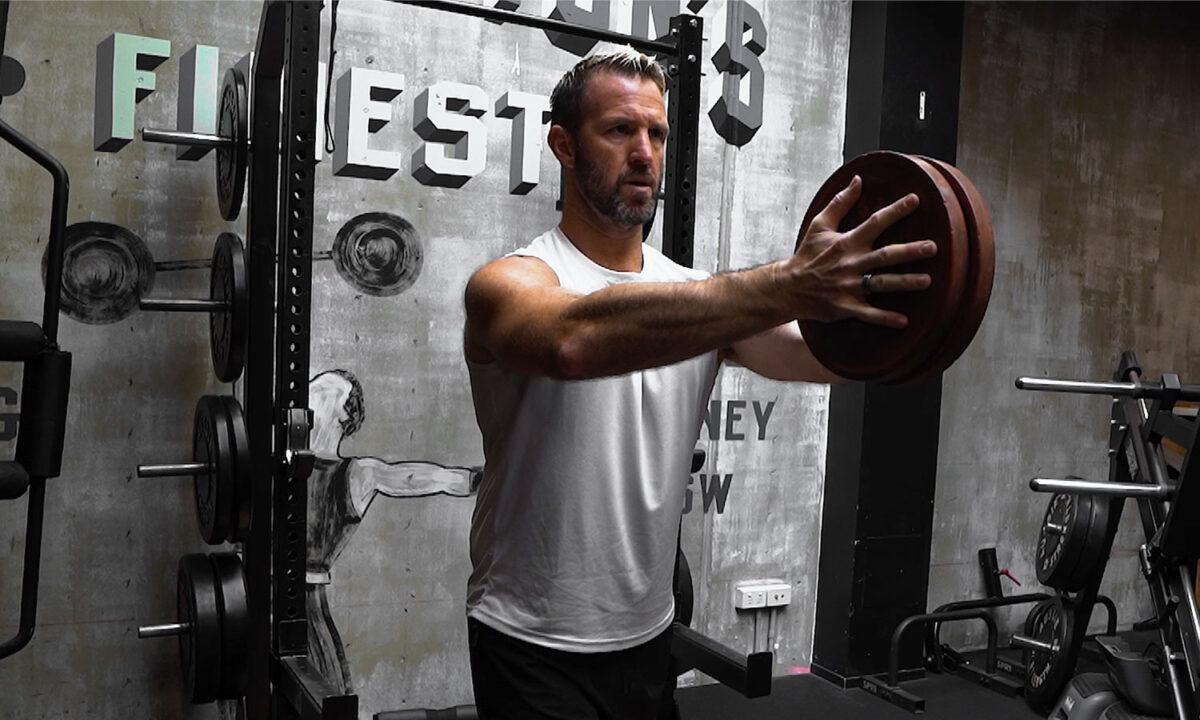
When you see this movement for the first time, it’s hard to believe that it can actually help. However, it can have a great effect on your chest muscles, and even if it’ll be a bit painful, you will not regret it when you see the results.
How to Perform This Chest Exercise: You’ll need two plates to perform this exercise. Take smaller weight ones in the beginning, like 5-pound or 10-pound plates. Then, press them together between your hands, using your force. You should extend your arms outwards in front of you.
You should also make sure that you apply tension constantly, so they do not slip apart or fall on your feet. Pull the plates towards the sternum and maintain your shoulder blades pulled together and your chest up. Also, press the weights back outwards while flexing your chest.
Do them in-between other chest exercises.
Sets: 2 sets of 5 slow reps
Tempo: 1-2 seconds pulling, 1-2 seconds pushing
Spiderman Push-Ups
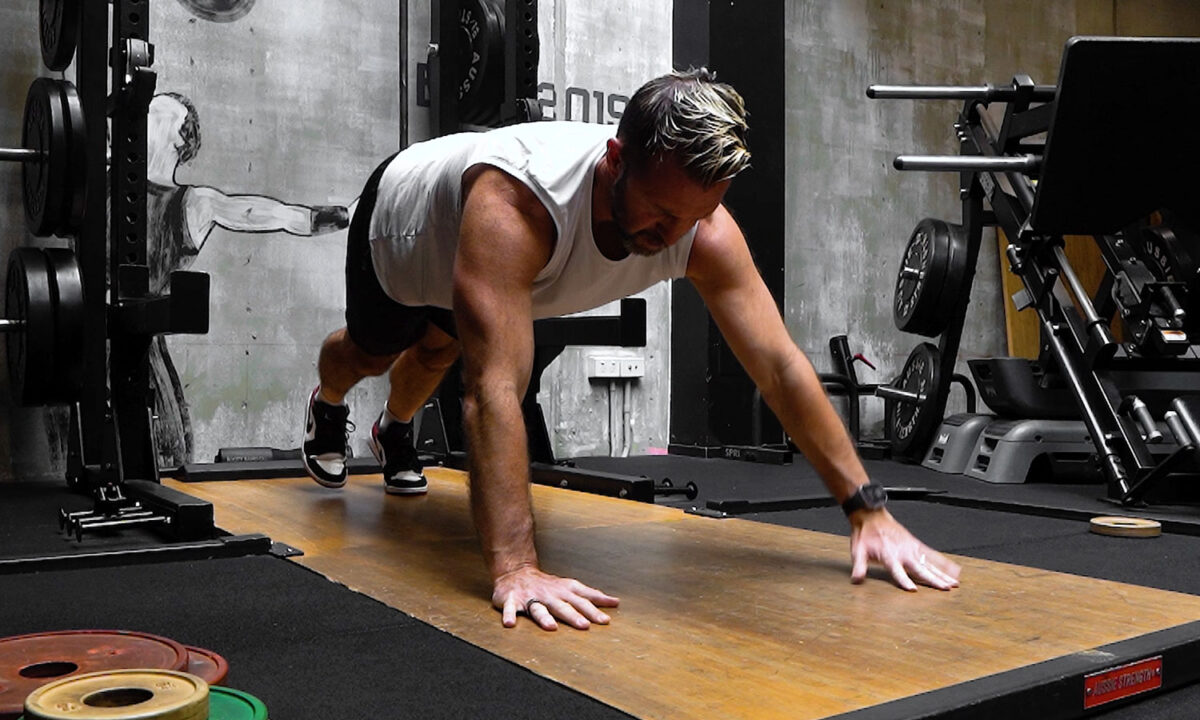
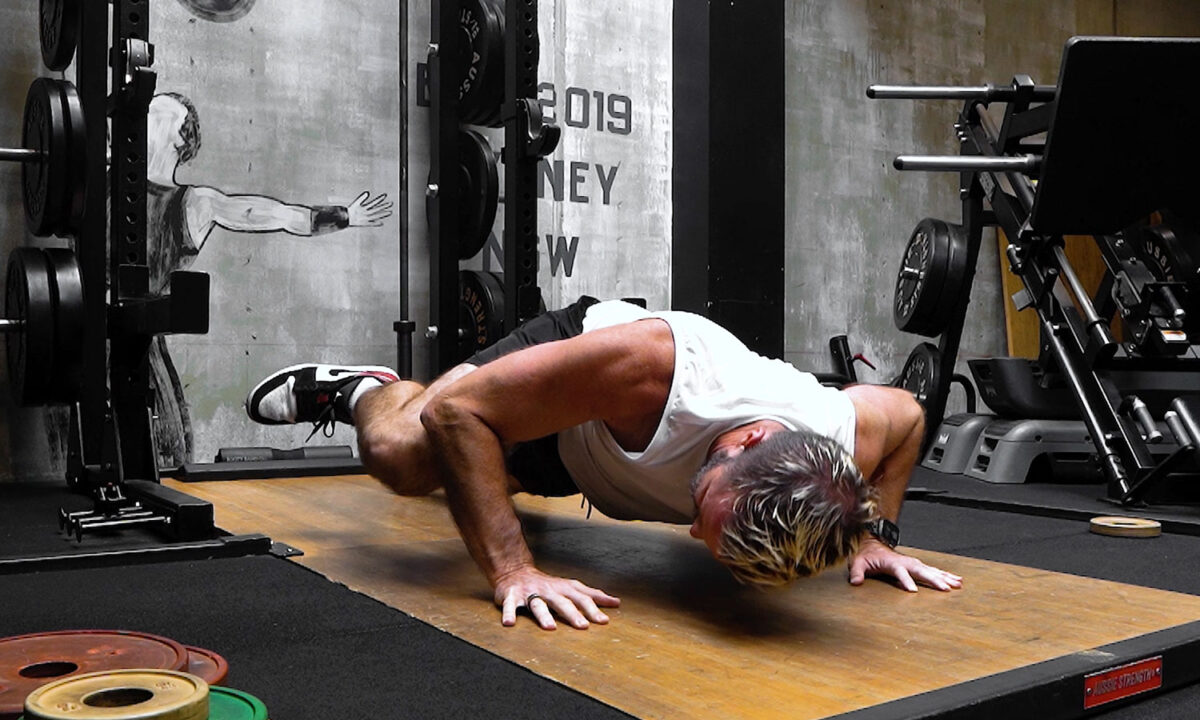
The Spiderman push-up is a good exercise for those who work out at home. It’s quick and easy, and you’ll soon feel its effects on your pecs. If you have some free time to exercise, you should squeeze this into your schedule because it’s great at engaging your muscles.
How to Perform This Chest Exercise: Take the traditional push-up position. Then, lower yourself toward your floor. While keeping your right knee off the ground, bring it to the right elbow. Next, you simply press back up and bring your leg back to its initial position.
Once you are done, you simply repeat the process with the left leg. What’s even better is that you can take a 60-second rest between sets, so you can move to the next one with new powers.
Sets: 3 sets with 10-15 reps each
Tempo: 2 seconds for the push-up, 1-second return
Pause Push-Up


Even if you love doing as many push-ups as you can to test your strength, something different like pause push-ups can be just as effective for your chest. These exercises can help your chest grow and look more defined and can also boost your endurance.
As the muscle stretch reflex is no longer available, the concentric contraction becomes harder.
How to Perform This Chest Exercise: Prepare for the exercise as you would for a traditional push-up. Then, lower down while keeping your arms around 46 degrees out from the torso. Then, stop while your chest is just above the ground, and stay like that for 3 to 5 seconds. Then, push up until lockout.
If you pause for longer, your core will have to work harder as well. The tension in your chest encourages muscles to grow nicely.
Sets: 2 sets with 12-15 reps each
Tempo: 3-5 seconds
Stair Push-Up
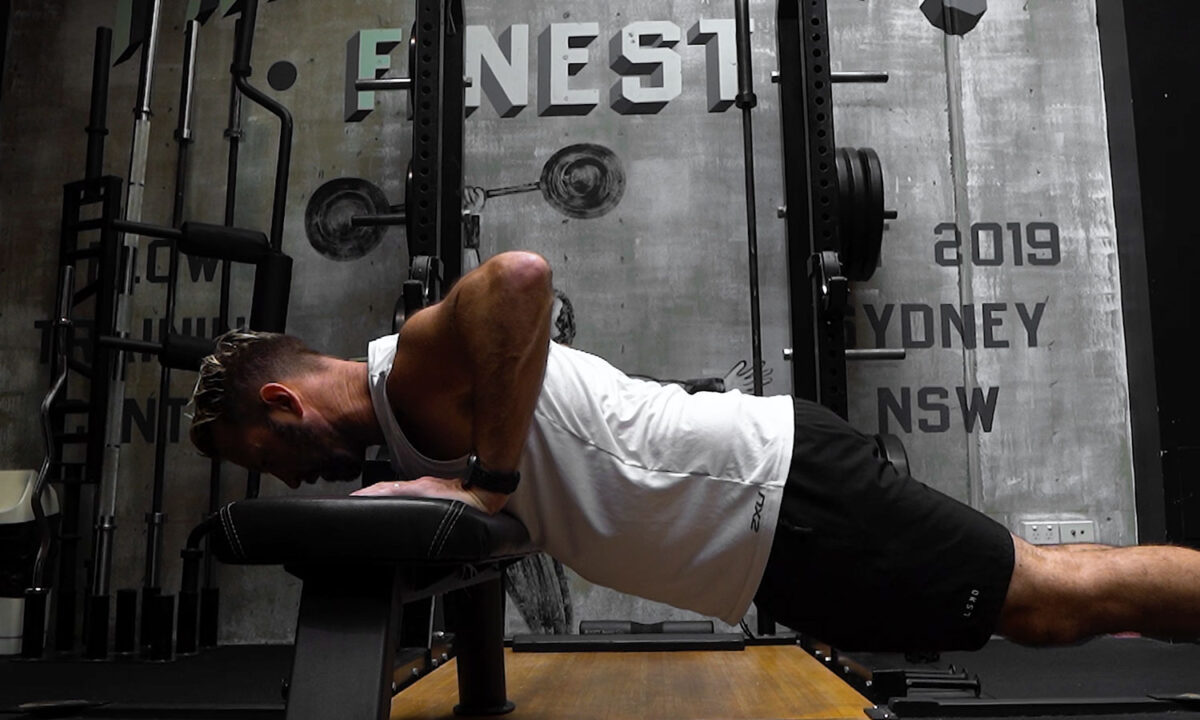
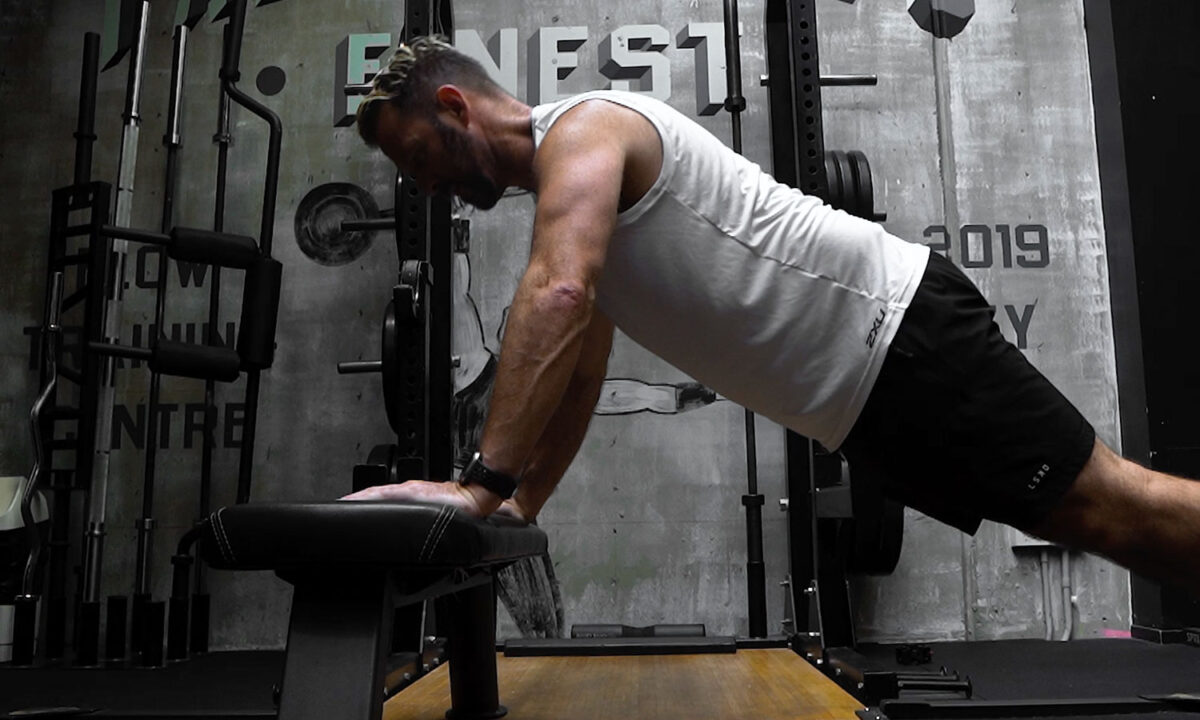
When you don’t have the time or money to go to the gym, you can use your home to train your chest. On top of that, it’s a good way to stay in shape even while you’re away from the gym. The stair push-up is one of the most popular movements, so if you have any stairs you can use, it’ll be a piece of cake to do this exercise. You don’t need any tools either.
How to Perform This Chest Exercise: Go to a set of stairs that you can easily press against for the exercise. Then, make sure you walk your hands closer than shoulder-width. Stay on your toes while keeping your body straight. Next, lower your chest toward the stairs. Lastly, you simply push yourself back up and repeat the movement.
Also, you don’t have to go crazy with this exercise either, because you can take 60-second breaks between sets.
Sets: 3 sets of 10-15 reps each
Tempo: 2 seconds for lowering the chest, 1-second return
Medicine Ball Pushup “Drop ‘n’ Pop”
If your gym has several medicine balls available, you can use them for building your chest. Although it sounds too good to be true, they can do wonders for your chest muscles, especially if you add them between other exercises. It won’t be that difficult, but you’ll feel the burn.
How to Perform This Chest Exercise: Get a medicine ball and put both your hands on it. Then, get into a pushup position. Release the ball and spread your hands out to shoulder width on your floor. Once you feel the ball touching your chest, quickly push yourself up, making your hands come off the floor and on the ball once again.
If you’re just getting started with the exercise, don’t be afraid to take a little break between sets. A 30-second break should be enough.
Sets: 3 sets with 10-15 reps
Tempo: 3-second push up, 1-2-second return